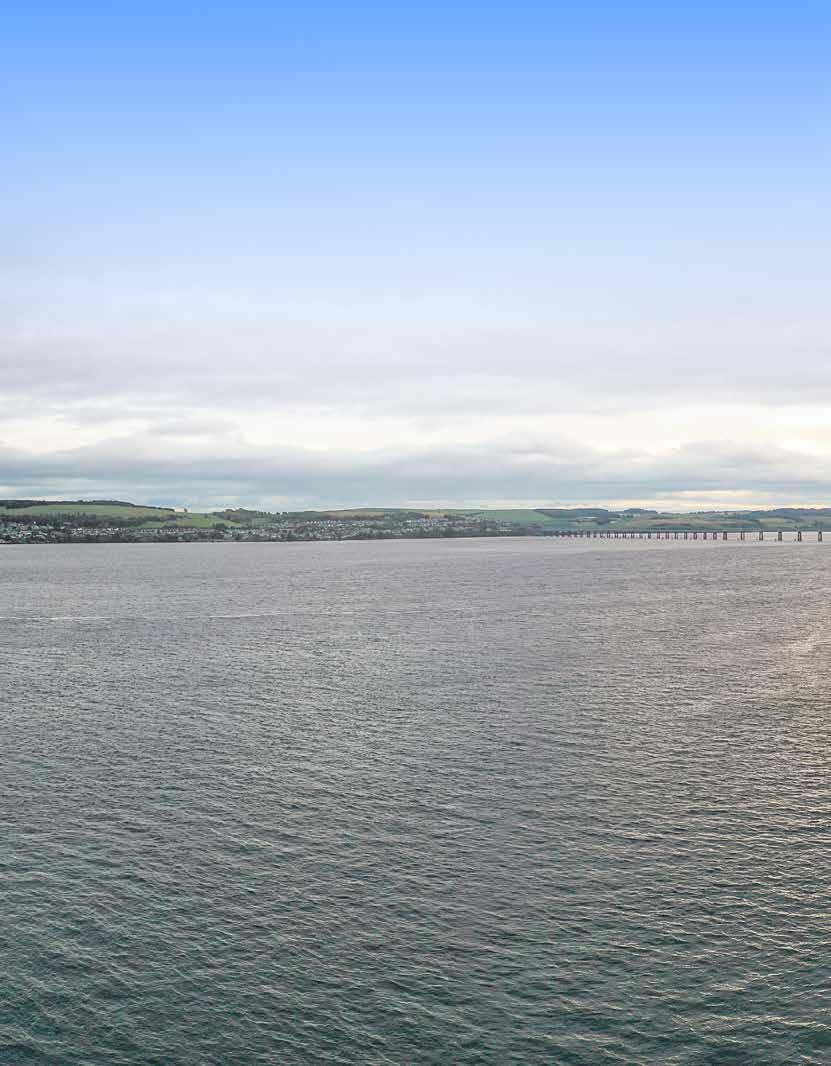Magazine for alumni and friends
University of Dundee

A University with global reach, we are of Dundee and for Dundee












Magazine for alumni and friends

A University with global reach, we are of Dundee and for Dundee











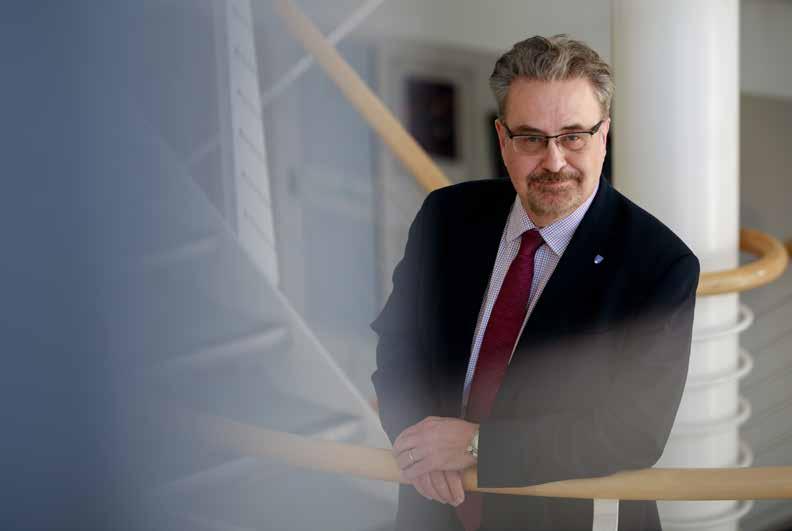
“Our mission – to transform lives through the creation, sharing and application of knowledge.”
Welcome to this year’s edition of The Bridge, our annual publication focused on the achievements of our alumni, our many supporters and the University itself.
I hope you will find much in the following pages that helps make you feel part of our University community, which extends around the globe.
We are a more international institution than we have ever been, both in our intake of students from around the world, with over 140 countries represented on campus, and the partnerships we are building and strengthening in many countries.
Throughout everything we do runs our mission – to transform lives through the creation, sharing and application of knowledge.
We are a triple-intensive University, delivering excellence in teaching, research and enterprise, all aimed at creating social impact.
You will see evidence of this in the magazine, from the equitable partnerships delivered through our Africa Initiative to the exciting development of our Binks Institute for Sustainability, and from our commitment to open more doors to higher education via our Access Summer School to the cutting-edge research being carried out across the University.
In all of this we receive vital support from you, our alumni, friends and supporters around the world, and I am hugely grateful for the interest you continue to show in our activities.
Whether you are one of our thousands of new graduates who have been part of our summer ceremonies at the Caird Hall, or someone who has been associated with the University for many years, I hope you are proud of the University’s success, and I thank you for all of your support. I hope we get a chance to see you again soon, either here in Dundee or wherever you are in the world.
Professor Iain GillespiePrincipal & Vice-Chancellor
“Transitioning to a net-zero world is one of the greatest challenges humankind has faced. It calls for nothing less than a complete transformation of how we produce, consume, and move about.”
United Nations statement on climate action
It is a challenge all of us must help address in our everyday lives. How we practically move towards a position of net zero will require great individual and collective willpower and resilience as well as corporate transformation and institutional actions.
In January 2024, the University signed up to an ambitious new climate and sustainability coalition seeking to help accelerate Scotland’s transition to a post-net-zero future.
Scotland Beyond Net Zero brings universities from across the country together in a network committed to combining our strengths to address the major challenges facing the nation.
The breadth of the climate challenge is illustrated by the six key areas on which the project has focused on as crucial for achieving net zero and related sustainability goals. These are Food, Transport, Finance, Built Environment, Natural Systems and Energy.
If we are to achieve the change required, it will require input from every discipline, from scientists, engineers and designers to economists, geographers and psychologists.
“We need the energy and insights generated in all of our disciplines to be brought together in exciting ways that will allow us to better address the critical global and local questions we face in achieving environmental sustainability,” said Professor Jeff Blackford, Dean of the School of Humanities, Social Sciences and Law.
“That means collaboration across the University and across institutions. This is why we are one of the founding signatories of Scotland Beyond Net Zero and why we have established our own Binks Institute for Sustainability, to nurture the partnerships and pool the knowledge needed to tackle the big questions that lie before us.
“Only by working together we will multiply our impact and make Scotland a world leader in environmental sustainability.”

Dundee is already recognised as one of Scotland’s leading centres of expertise in many areas of environmental research.
Dundee hosts the UK’s only UNESCO Category 2 Centre, which is also the world’s only Centre for Water Law, Policy and Science. The UNESCO Centre works internationally on some of the world’s most urgent problems across multiple sectors and environments and enhances connections to an international network of water scholars.
The University is also home to the Centre for Energy, Petroleum and Mineral Law and Policy (CEPMLP), which works with postgraduate students to better understand the required global transition from fossil fuels and mineral extraction to a low-carbon energy system and renewables, accessible to all through processes of just transition.
The newly established Binks Institute for Sustainability builds on these and other diverse research and teaching strengths in many disciplines, to address the critical need for contemporary societies to confront the climate crisis and to facilitate ways of living in environmentally sustainable ways.
As you will read elsewhere in this magazine, that work extends to service design, the living laboratory of our Botanic Garden, and the work of the University’s Africa Initiative, a ten-year commitment that has already established new and exciting partnerships with six universities in Malawi.
Professor Blackford added, “We are proud of our achievements in relation to climate action and net zero but as is the case for all of society, there is much more we can and must do and that is why we have ambitious targets to build on all of this work, with the Binks Institute as a catalyst at the heart of it.”
The Binks Institute for Sustainability was established with the generous support of the Binks Trust, through Jo and Alison Elliot. Jo Elliot said, “I am a former member of the University Court, and Alison and I are now delighted to be in a position to help fund this major initiative in pursuit of the University’s strategy to enhance its performance and reputation.”
The Institute has established four main research themes:
→ Food, Fibre and Feed
→ Environmental Science, Law and Policy
→ Sustainable Design
→ Engineering for Sustainability
A PhD programme has been established and is expected to welcome the first cohort of Binks PhD students in September 2024.

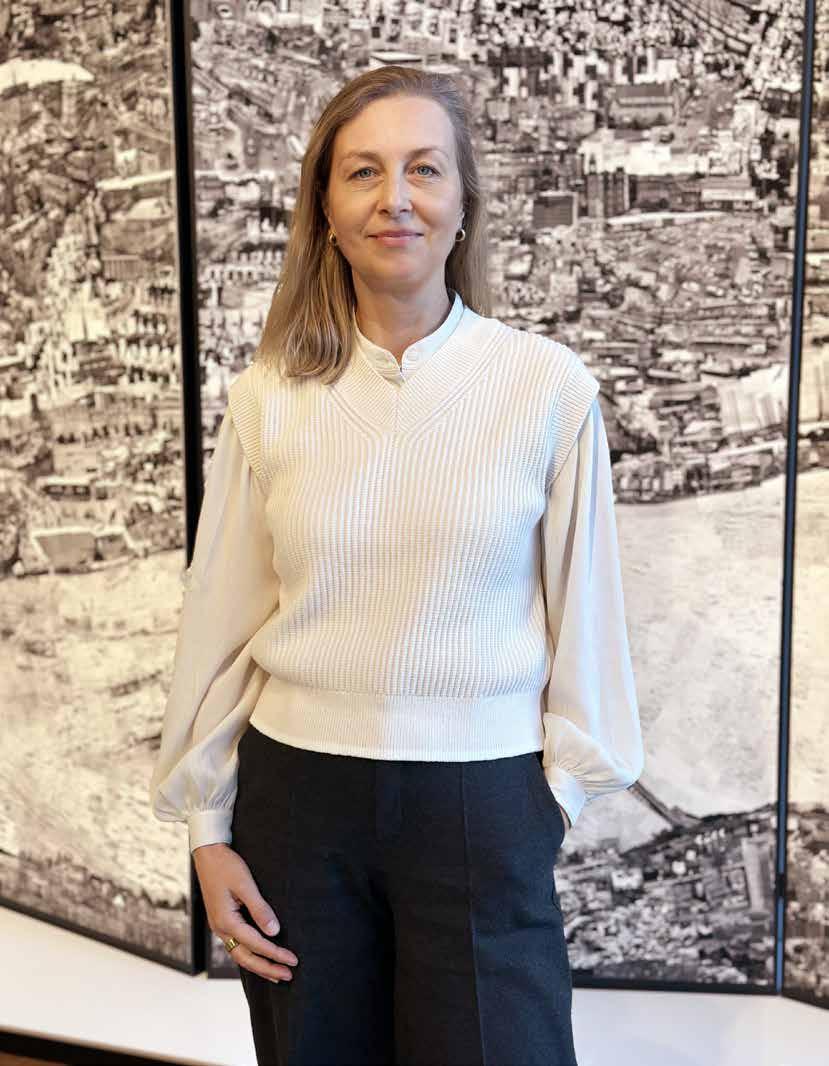
The University of Dundee wants to change the world. It’s a big ambition but two major projects led by Duncan of Jordanstone College of Art and Design (DJCAD) are doing just that.
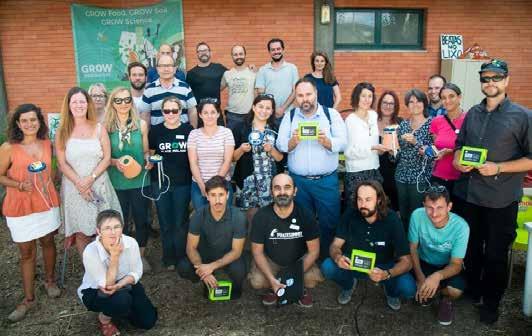
Urban ReLeaf, a four-year Horizon Europefunded project, is transforming grey areas within our cities into green, biodiverse spaces and is encouraging residents in Dundee to get involved with data collection.
Design HOPES aims to make NHS Scotland a ‘greener’ organisation and is using design to tackle the issue of sustainability, supporting the health body to reach Net Zero by 2040.
Research for these projects is led by Mel Woods, Professor in Creative Intelligence at DJCAD, and they are having a huge impact here in Dundee and wider afield.
Urban ReLeaf is collecting data from residents in Dundee through an app which gathers people’s perceptions of green space in the city, and this will help Dundee City Council decide which areas need ‘green investment’.
And through service design, Design HOPES is tackling multiple themes identified by NHS staff. Pop-up exhibitions providing solutions to day-
to-day challenges of sustainability have been displayed at Ninewells Hospital, Dundee, while a sub-project, Flow, is analysing unscheduled patients’ journeys through hospital.
Both Urban ReLeaf and Design HOPES place significant importance on sustainable urban planning and design to achieve climate goals, and this is where expertise from Mel and her team at DJCAD is drawn upon.
Mel said, “Climate change is a wicked problem that many in DJCAD have been engaged with for quite some time.
“Our link is in systemic design and technology, and we have been engaged with challengebased research around the environment, health, climate crisis and thinking about the future.
“Our research is transdisciplinary, and goes beyond gathering data, it’s fundamentally about working with communities to translate research into actual change.”
Continued over
“People might not think forest fires happen very often in Scotland, but dry soil can impact us in different ways.”
Mel Woods
In a previous citizen research project, Mel and colleagues at the University developed sensor kits to monitor temperature, air quality and soil moisture at various locations in Scotland.
The sensors were introduced in community areas, allotments and farmlands to help build up ‘soil data’ and users were also asked to register trees, plants and land usage.
The team’s work is now being upscaled through Urban ReLeaf, which sees collaboration between 15 academic and private sector partners in six countries.
Residents across Dundee – alongside those in Athens (Greece), Cascais (Portugal), Mannheim (Germany), Riga (Latvia) and Utrecht (Netherlands) – are joining together to map out and monitor this environmental data in their city.
Data will be collected for two years on grey and green spaces, landscape and air quality, and uploaded to a mobile phone app, where it will be available for all users to see.
Following the collection period, local authority planning officers will use the data to decide where to invest in higher quality green areas, which will facilitate biodiversity as well as being areas people can enjoy.
Mel said, “Citizens collecting and monitoring this data themselves gives them involvement in ongoing efforts by the city to improve our green spaces, air quality, noise pollution and the quality of our environment.
“Our previous research tells us, for example, that soil moisture is connected to a reduction in forest fires. People might not think forest fires happen very often in Scotland, but dry soil can impact us in different ways.
“Dry soil can also cause stress to trees and combined with the force of high winds and storms, this can cause trees to fall. We need strategies to manage this.”
The data collection will also be used to identify areas which need additional naturebased infrastructure and solutions, such as areas which are prone to flooding.
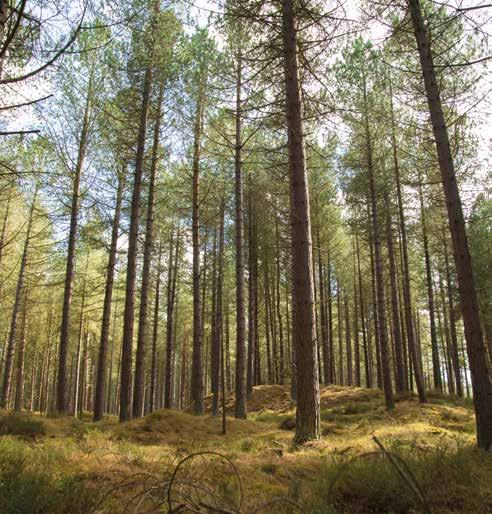
A large portion of work around climate change focuses on the health of the planet, however, the impact of climate change on human health is also significant.
Global average temperatures are increasing, and we are experiencing an increase in the frequency and severity of extreme weather events which have direct and indirect impacts on health and wellbeing.
But NHS Scotland, which works tirelessly to treat people in their time of need and is very much valued and treasured by our society, contributes up to 5% of our country’s total carbon output.
In a bid to cut this figure, Design HOPES (Healthy Organisations in a Place-based Ecosystem, Scotland) utilises design-led research to accelerate NHS Scotland’s progress towards achieving Net Zero outputs by 2040.
Working in line with the NHS Scotland Climate Emergency and Sustainability Strategy, this two-year project is funded by the Arts and Humanities Research Council. It is co-directed by Mel and an academic at the University of Strathclyde and works with researchers from universities throughout Scotland, industry partners, and public sector stakeholders.
Design HOPES is applying a Systemic Design Framework (Design Council) to NHS Scotland through the lens of sustainable design, from patient journeys, to travel and energy use, medical materials and personal protective equipment (PPE) waste.
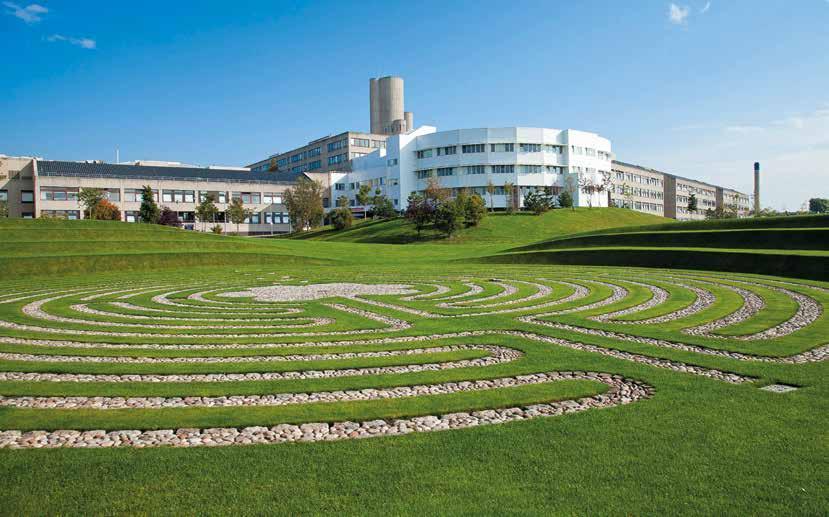
“Citizens collecting and monitoring data themselves gives them involvement in ongoing efforts by the city to improve our green spaces, air quality, noise pollution and the quality of our environment.”Mel
Woods
A sub-project of Design Hopes, called Flow, looks at unscheduled patient journeys to reduce waiting times and manage resources. It is hoped this work will allow shared success across all health boards, fostering collaboration.
NHS Tayside has for many years worked towards excellence in urgent and unscheduled care (UUC) and the national redesign of the UUC programme allowed pre-existing measures to be expanded in Tayside.
Mel said, “Ninewells Hospital has achieved this by doing something quite innovative –they’ve put the consultant right at the start of the decision-making process.”
Multiple specialities – from paramedics, GPs and community pharmacy – actively control incoming patients to manage demand. Alongside this, there are continued efforts in downstream wards and local health and social care partnerships to achieve flow at every stage.
The impact of this decision has seen a reduced number of journeys to hospital alongside patients having early assess to local community-based services – estimated to save up to 50 tonnes of CO2 in the region annually.
By supporting patients to be cared for at home or closer to home, or to return home earlier, this can free up the whole system, meaning those with greatest acute need are able to flow through the hospital and receive the care required.
NHS Tayside already had this strategy in place, but collaborative Flow allows a framework to challenge current practice and model future improvement ideas before implementation.
For more information on Design HOPES visit the website designhopes.org and for information on Urban ReLeaf, visit urbanreleaf.eu/cities
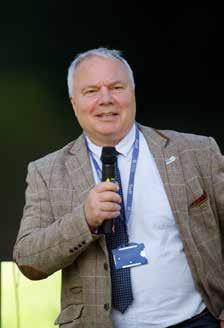
It is a beautiful place to visit, but the Botanic Garden is also increasingly a hub of research, design, art, craft and science, with a focus on making us think about the world we live in and how we can do that more sustainably.
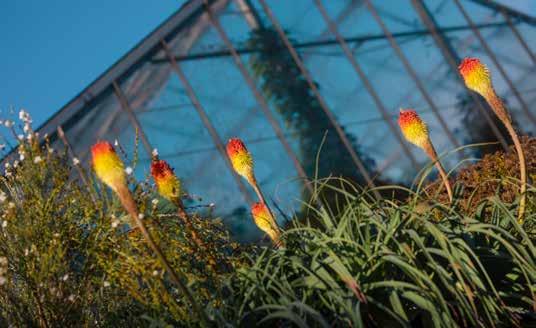
Kevin Frediani has one of Dundee’s most picturesque places for his everyday workspace. Spread across 9.5 hectares, and looking out over the banks of the River Tay, the University’s Botanic Garden houses a wide range of plants indigenous to Britain and drawn from across the world.
The garden welcomes more than 80,000 visitors a year and there are few finer spaces within the city to stop and relax, find some peaceful moments, and enjoy the flora and fauna around us.
It is also a hive of activity for artists, designers, researchers and students engaged in a multitude of projects.
“This is the mix we need, to allow the garden and our other grounds to prosper, but also to help address some of the great challenges facing our planet,” said Kevin, who is Curator of the Botanic Garden.
“The combined challenges of climate change, population growth and the unsustainable use of natural resources locally and globally are resulting in the unprecedented loss of biodiversity and essential ecosystem services that support life on earth.
“Climate change requires new landscapes to be planned, designed and implemented to inform sustainable urban landscapes while conservation requires opportunity for plants to thrive in landscapes that will serve people’s needs today, while benefiting the diversity as it grows. To achieve this new landscape requires novel research while providing opportunities to collaborate in local placemaking.
“This is how we have set out our strategy, based around the concepts of ‘growing people – growing places’ and the idea set out by Patrick Geddes, the first professor of Botany at the forerunner to the University of Dundee, to think globally while acting locally.”
This sets the garden as both a living lab and a landscape canvas.
“I hope the garden can be a beacon for environmental thinking, helping us understand how we can make a better world for humans and the landscape around us.”
Kevin Frediani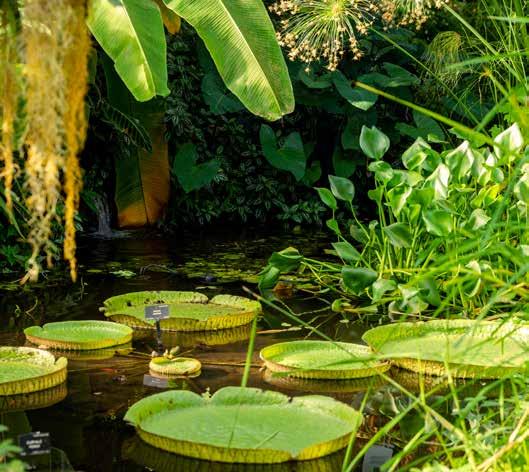
“The living lab is a physical place where we both host and undertake research on the living collections in the garden and university grounds,” explained Kevin.
“Meanwhile the landscape canvas, including the garden and our exhibition space, is recognition that the design and cultural aspects of gardens as spaces that become places, is imbued with emotion from the actions of many people, and the environment.
“This has increasingly included designers, artists, and creative professionals, who collaborate to enable the garden as a place of enjoyment, education and engagement that is becoming an ever more valued cultural place in the city and an asset for Scotland.”
Kevin himself is involved as an Associate with the University’s UNESCO Centre for Water Law, Policy and Science, where he helps lead the Bioregional Tayside project that includes the River Ericht Catchment Restoration Initiative, and is a Co-Investigator for the Urban ReLeaf project with Mel Woods.
The living lab is set to launch its own occasional academic journal this year, showcasing the research that collaborates with the garden from across the academic schools, plus some of the PhD students affiliated with the garden.
One of the projects that has spun out of the living lab as a PhD project is the Scottish Daffodil Project – sponsored by the Royal Society and in collaboration with STEM scientists from the James Hutton Institute and the School of Life Sciences.
This has resulted in published papers, posters and talks and empowered school children to undertake plant science in their own school labs. The project has now expanded across the UK to support 23 schools.
“This is just a flavour of the sort of project we can support and partner in,” said Kevin. “It is a very exciting time as there are plans to establish a new Eden Project in Dundee, and we are already engaged in so many good things.
“We have partnered for success in bringing forward a new project that is helping to codesign and enable nature-based solutions to improve human wellbeing, mitigate climate change and provide a place for biodiversity.
“We are also engaged with the Wee Forests initiative, Rewilding Dundee, Art from the Start, and many artistic and wellbeing community partners to host Playful Gardens to mention only a few.
“I am also involved in developing the potential for landscape restoration projects in partnership with The National Botanic Garden and Herbarium in Malawi and the Royal Botanic Garden Edinburgh, which links to the University’s Africa Initiative.
“I hope the garden can be a beacon for environmental thinking, helping us understand how we can make a better world for humans and the landscape around us.” For more information on

Esther Mabedi aims to transform the lives of people in her home country by improving safe access to Malawi’s ‘invisible’ resource – groundwater. A fully funded PhD from the University of Dundee is helping her do just that.
Malawian hydrogeologist Esther Mabedi has fond childhood memories of racing her cousins to the local water borehole in Milambo village.
Milambo, like many other rural areas in Malawi, and indeed Africa, heavily relies on groundwater, fresh water located below the surface of the earth, for water service provision for drinking and domestic use.
Alongside those happy memories with her cousins, Esther also recalls times when the borehole, a point to collect clean drinking water, would break down.
“I spent almost every long holiday with my grandmother in the village,” she said. “Fetching water with my cousins was playful at the time, being children. We would all chase each other to the borehole or to the spring to fetch water for my grandmother.
“I remember one time the borehole was out of use, and we had to go to another village to collect water – that meant a journey over hills and back. It wasn’t fun.
“That is the reality – when groundwater access points, such as boreholes, are not functioning, people have to resort to other water points, which may include open wells or rivers, that are not always clean.
“I want to contribute towards ensuring that groundwater is clean and safe and that people using it have peace of mind. I want to leave people and communities in a better place than they started off.”
Groundwater is estimated to support up to 85% of Malawi’s rural population. There are many challenges that concern the management of groundwater supplies, including maintenance of numerous communal supply points, typically hand-pumped boreholes and wells, and risks of contamination. Success in overcoming these challenges has been limited, with the rural population remaining burdened with insecurity in water access and poor health linked to water-related diseases, including cholera.
Esther is undertaking doctoral research within the School of Humanities, Social Sciences and Law to tackle these issues.
She is among the first awardees of the Africa Doctoral Fellowship, a multi-million pound scheme bringing African researchers to Dundee to complete their doctorates.
Her doctoral project looks to advance methods for assessing, mapping, and managing risks to groundwater quality and access, making the ‘invisible’ resource, and its challenges, visible.
“It is fascinating to think that the ground we step on has water beneath it,” she said. “It is invisible to us, but it’s there, and it is central to our rural communities in Malawi.
“There are two main issues facing Malawi’s groundwater – accessibility and quality.
“Quality concerns natural and anthropological contamination, including contaminants from sanitation provision.
“Our water and sanitation services are working against one another. Pit latrines are used extensively, and are often found in proximity with water points, meaning that cross contamination is a possibility.
"My work looks at how we can map groundwater and study how contamination occurs, then looking at how we can assess the risk of and improve the methods for assessing the risk of contamination.”
The World Health Organization (WHO) reported that Malawi had the world’s deadliest cholera outbreak in 2023 – 1,771 people lost
“I want to contribute towards ensuring that groundwater is clean and safe and that people using it have peace of mind.”
Esther Mabeditheir lives to the disease in the country, a huge portion of the 4,000 who died worldwide. Esther hopes her research can help change that narrative.
"If we manage our water and sanitation services better, it will reduce the number of people catching diseases such as cholera,” she explained.
“Down the line, I will be working with a real community in Malawi, looking at their approach in groundwater management and water provision, directly addressing and trying to improve social problems around water supply with the knowledge of science. Being able to study that and provide that for these people is important to me.”
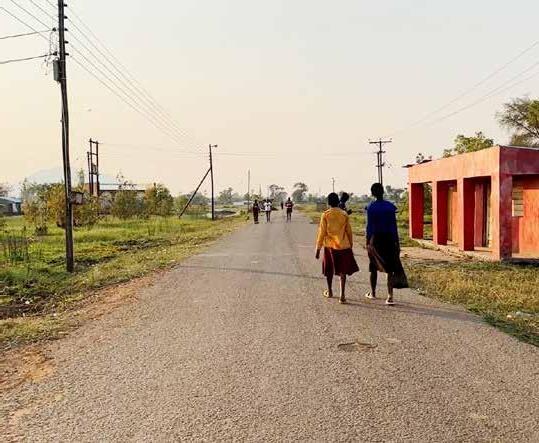

Esther is among five individuals awarded in the first round of the University of Dundee Africa Fellowship scheme. The cohort joined the University in 2023. The University has committed to fund 25 PhD places for candidates across Africa over the course of 10 years, with a particular focus on projects that aim to tackle issues throughout the continent. It is a central element of the University’s Africa Initiative, which reflects the commitment to broadening research ties and capacity building with strategic partners across the continent.
Please contact the Advancement Team at advancement@dundee.ac.uk if you are interested in supporting a PhD place.
family connection that drives one man’s work
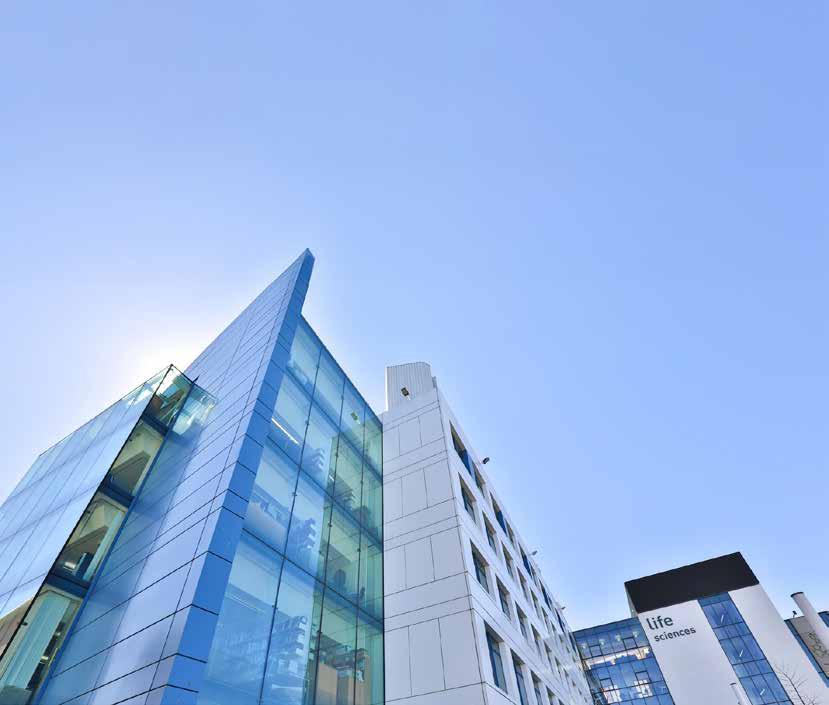
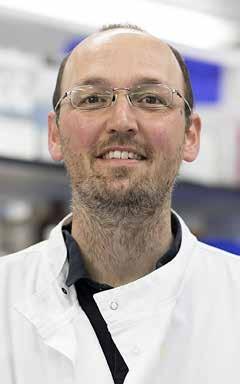 Dr Andy Howden Principal Investigator, School of Life Sciences
Dr Andy Howden Principal Investigator, School of Life Sciences
One of the University of Dundee’s central aims is to transform lives locally and globally. Achieving that is not always easy, and there are few more difficult tasks than addressing one of the most pressing health challenges our world faces.
While Dundee may historically be known as the home of ‘Jute, Jam and Journalism’, today the city is recognised as a leading centre for research into Parkinson’s disease.
A disabling neurodegenerative illness, Parkinson’s was identified more than 200 years ago. Despite this, no means of curing – or even slowing – the condition have been identified. The most successful drug to manage Parkinson’s, Levodopa, was developed 60 years ago. With diagnosis rates rising, the need to find new treatments and therapies has never been more apparent.
At the University’s School of Life Sciences, some of the world’s leading experts have committed themselves to solving the Parkinson’s puzzle. One of the key contributors to this work is Dr Andy Howden, Principal Investigator. Having lost his father to Parkinson’s, he understands as well as anyone the urgent need to develop new treatments and therapies.
“Parkinson’s affected my own father for more than 20 years,” he said.
“Having witnessed its effects on a loved one, as well as the patients that we work with here at the University, I am aware of just how important the work we are doing here is. It really cannot be overstated.
“We have some of the best minds and most advanced technology, all working together with a single goal of improving the quality of life for people living with Parkinson’s. That goal drives us every day. While we know that there can be no quick results, we are learning all of the time and already we are seeing the impact of our research.”
Dundee’s position as a leader in Parkinson’s research has already brought about significant breakthroughs. A recently launched drug trial in the city is utilising what are known as LRRK2 inhibitors. Mutations in the LRRK2 protein kinase are the most frequent cause of inherited Parkinson's disease and there is hope throughout the scientific community that a successfully developed inhibitor could slow progression of the disease in those living with the condition.
Earlier this year, experts at the University’s School of Medicine made a significant breakthrough, discovering that patients with Parkinson’s can create a back channel within their brain that they may use to prevent them from becoming apathetic – one of the first and most prevalent symptoms of the illness. There are hopes that further research could exploit this discovery to develop new treatments.
Dundee’s Parkinson’s research has been bolstered significantly by a dedicated fundraising campaign. Launched in 2019, the Dundee Parkinson’s Research Campaign builds on the University’s state-of-the-art facilities, and established links with charitable foundations and pharmaceutical companies. Last year saw the installation of a liquid chromatography system, purchased with help of donations to the campaign and allowing experts to analyse the impact of Parkinson’s disease on an individual’s cells and tissues.
“We are making progress, but we know there is still a long way to go,” Andy added.
“We are all aware of the significance of what we are trying to achieve, and having the support of the public means a tremendous amount to us. The campaign has helped to elevate the quality of our research and serves as an important reminder of just how many people are looking to us to help them, a loved one, or someone they know, in their own battle with Parkinson’s.”
You can transform lives by supporting the Dundee Parkinson’s Research campaign. Visit uod.ac.uk/bridge-2024-parkinsons
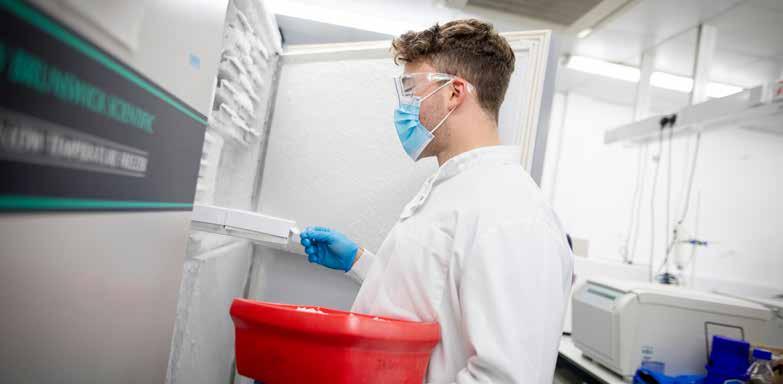
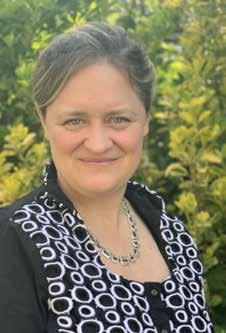
Professor Iris Grunwald, Chair of Neuroradiology, shares how the University is improving patient care in Dundee and around the world.
Every five minutes, somebody in the UK will experience a stroke. The impact of such a severe medical event can be transformative for an individual, occurring often without warning and with the ability to kill or leave a permanent mark on its victim.
And for those who do survive there is a risk of long-term effects, including paralysis and speech impairment, which will require lengthy periods of rehabilitation, with no guarantee of success.
Intervention at the onset of a stroke is critical, and this is where Professor Iris Grunwald, Chair of Neuroradiology at the University, is making her mark.
“It’s all about time,” says Iris.
“For every six minutes that the arteries to the brain are blocked following a stroke, the chances of what we would call a ‘good’ outcome
drop by 1%. That means the permanent loss of millions of brain cells, significantly increasing the chances of disability or even death.”
Ischemic strokes are caused by either a vessel blockage or a blood clot preventing oxygen reaching the brain. The onset of a stroke can be sudden, often with an inability for a person to speak or move one side of their body.
One of Iris’ main goals at Dundee is to embrace new technology to improve patient care. Central to this mission is the multidisciplinary Tayside Innovation MedTech Ecosystem (TIME).
The new facility brings together the University, NHS and industry, enabling new technologies to quickly move from prototyping to commercialisation to adoption in the healthcare sector, ultimately creating new wealth for the region and improved health outcomes.

“As a Co-Director of TIME, my goal is to spark medical technology innovation and to improve patient care in our community and around the world,” says Iris.
“Collaborations are realised through easy interaction of clinicians, researchers, industry, and entrepreneurs. TIME is a powerhouse of product development, engineering, research, and clinical expertise all under one roof, with a primary focus on innovation and product development.”
Part of the TIME initiative has seen Dundee become only the second university in the world to receive a state-of-the-art mobile Photon Counting Detector (PCD). Photon counting technology has the potential to revolutionise radiology by providing higher quality images with less radiation, allowing experts to analyse differences in a patient’s tissue characteristics. These images provide more accurate insights into stroke and cancer care.
“Dundee is always fantastic for embracing technology and utilising it to improve people’s lives,” added Iris.
“For example, the World Federation for Interventional Stroke Treatment recently accredited the University of Dundee as a training centre of excellence for interventions in stroke, recognising our unique perfused training models.”
Iris’ work in TIME will supplement her already considerable contribution to stroke patient care. Having been instrumental in introducing thrombectomy in Dundee in 2020, through the training of interventional radiologists, Iris and her team also created software that analyses CT scans in acute stroke, supporting doctors across the world. Iris also introduced the first Mobile Stroke Unit Ambulance to England, a project she is attempting to secure funding for to replicate in Scotland.
Iris added, “TIME fosters collaborations that impact the lives of individuals in our community: patients, physicians, researchers, and students.
“I came to Dundee because I saw the great collaboration between the University and the local health board, NHS Tayside. There is also a great entrepreneurial spirit, and the University is renowned for its ability to work with and support spinout commercial partners.
“That is a special combination, and with the right support I am confident that we can create the next generation of medical technology to treat vascular disease in Scotland and beyond.”
To find out more about Iris’ work contact advancement@dundee.ac.uk
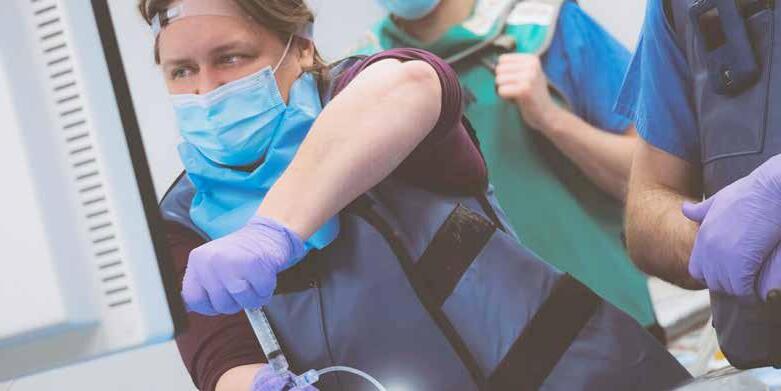
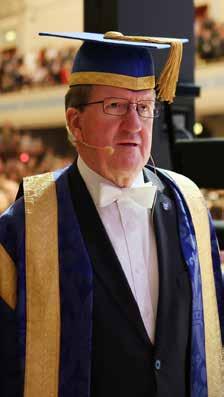
The most senior position of the University is our Chancellor, who is also the ceremonial head.
“This is a superbly performing University and one of the best in the country, I feel privileged to be part of this community and in a position to help the University in any way I can.”
Lord Robertson
At our Graduation celebrations in November 2023 we formally installed Lord Robertson as Chancellor, succeeding Dame Jocelyn Bell Burnell, who had served as Chancellor since 2018. Other previous Chancellors include HM The Queen Mother (1967-77), Lord Dalhousie (1977-92), Sir James Black (1992-2006), and Lord Patel (2006-2017).
Taking up office meant George came full circle in returning to his alma mater, where he matriculated when it was still Queen’s College, Dundee in 1963 in order to, in his words, “get away from home and spare my father embarrassment”.
The time between his student days and making his return to Dundee as Chancellor was filled with an outstanding political and diplomatic career which has taken him to the top echelons of international relations and statesmanship.
He was Member of Parliament for Hamilton and then Hamilton South from 1978 to 1999 and joined the House of Lords in 1999. He became a member of Her Majesty's Privy Council in 1997.
He was the 10th Secretary General of NATO and Chairman of the North Atlantic Council

from 1999 to 2003 and UK Secretary of State for Defence from 1997 to 1999. He was Shadow Secretary of State for Scotland in the Shadow Cabinet from 1992 to 1997 and was named Joint Parliamentarian of the Year in 1992.
He is also one of the sixteen Knights of the Thistle (KT), a Knight Grand Cross of the Order of St Michael and St George (GCMG), and among several high international honours received, he was awarded the highest American civilian honour, the Presidential Medal of Freedom in 2003. He is also an Honorary Fellow of the Royal Society of Edinburgh (honFRSE).
The foundations for that political career were established in his younger days, both in his hometown of Dunoon, where he made a name for himself as a precocious activist, and then when he arrived at Dundee.
He was elected to the Student Representative Council during his first year in Dundee and his reputation only grew over the next four years.
He wrote a weekly column in the University’s ‘Annasach’ newspaper, where he certainly didn’t pull any punches, and was heavily involved in on-campus demonstrations. He was one of a number of Dundee students to invade the pitch
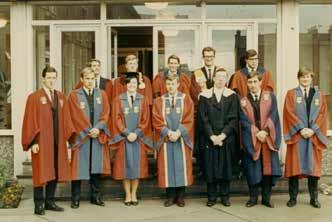
during a rugby match at St Andrews involving a team from the Orange Free State to protest against apartheid. He also organised a 24-hour work-in by students in the library in opposition to proposed cuts to student grants.
When he arrived in Dundee, Queen’s was already on the verge of becoming a university in its own right. For students such as George who were due to receive their degrees during the University’s first-ever graduation ceremony, this meant deciding where their loyalties lay –Dundee or St Andrews.
He opted for a Dundee rather than St Andrews degree and urged others to do the same to give the fledgling university “a start in life”.
George graduated in 1968 with an MA (Hons) Economics degree. He readily acknowledges that the University and his time in Dundee changed his life, not least in that his wife worked in the Economics department and they met while George was working here following his Graduation.
He has remained a passionate supporter of, and advocate for, the University ever since his student days and is extremely proud to now be our Chancellor.
“This is a superbly performing University and one of the best in the country, I feel privileged to be part of this community and in a position to help the University in any way I can.
“It is a great honour to be Chancellor of the University where I was a student – a rebellious student – but someone who cares very much about it and was deeply enriched by my experience here. Dundee made a huge impression on me. It helped me to grow up, to mature, to become more vocal, even more than I was before, so it had a huge transformative effect both in teaching and learning, but just in life as a whole.
“And I see that continuing, in the way the University really is transforming lives all around the world, from the great experience we offer our students to the impact of our research on population health and wealth, and in addressing some of the big questions our world faces in sustainability and the climate emergency.
“Together, as alumni, students, staff and supporters, we can, and we do, achieve great things.”
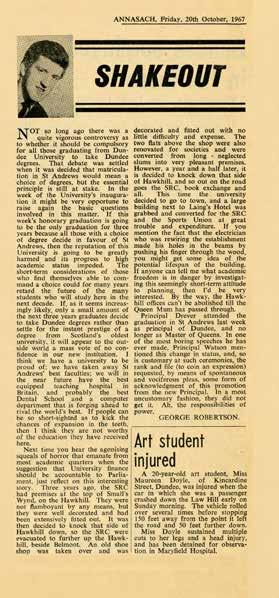
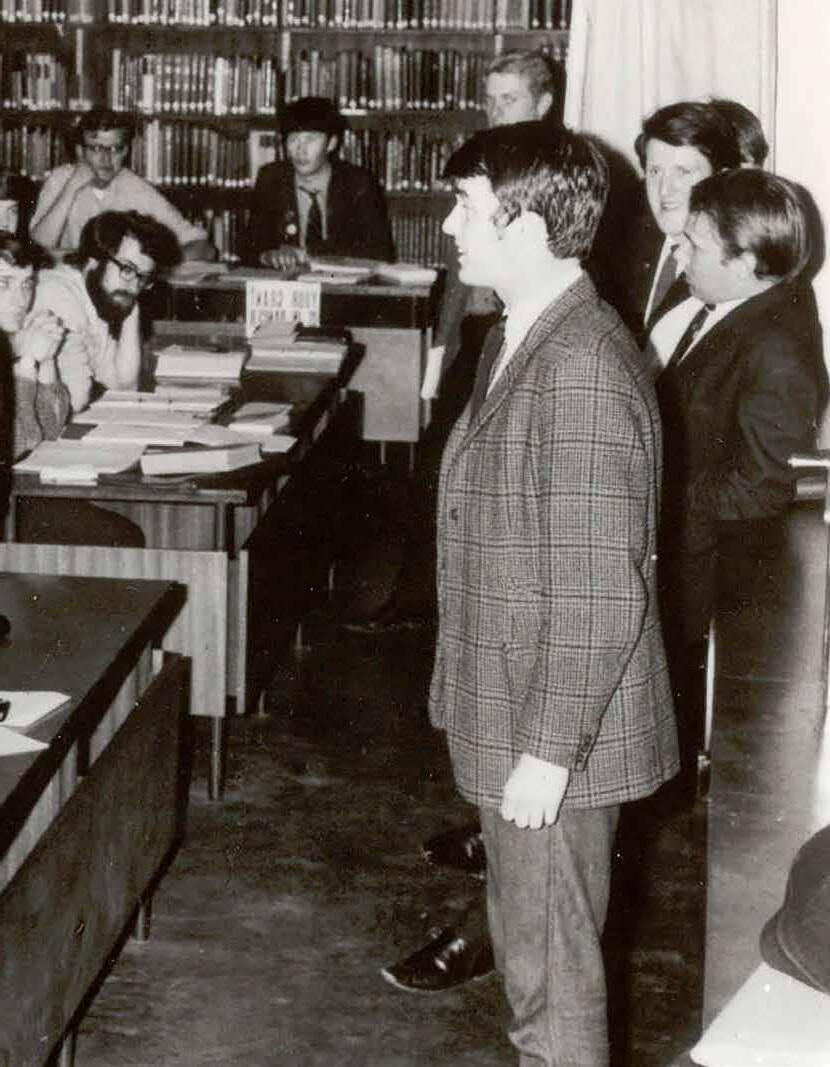 Left: The Student Representative Council, 1967
Background: George during the 24-hour work-in, 1968
Left: The Student Representative Council, 1967
Background: George during the 24-hour work-in, 1968
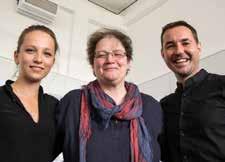

The experts correcting the criminal misconceptions of forensic science.
We all know how a crime drama plays out. The villain commits a crime, the police investigate, and the perpetrator gets caught and punished. Whether it is in a book, a movie or on television, we almost always know that a crucial piece of evidence will allow the heroic investigator to identify the villain and crack the case. Simple.
But popular media is frequently guilty of simplifying the complexities of real life. It is one of the reasons why in 2016 the Leverhulme Research Centre for Forensic Science (LRCFS) was established at the University, with the mission of, amongst other things, promoting a realistic understanding of the field of forensic science to the public. So when the opportunity to influence a new British crime drama – Traces – came about, the Centre’s Director, Professor Niamh Nic Daéid, was keen to learn more.
“The original idea for Traces came from a piece of work the University did with the author Val McDermid,” she said.
“That gave her the idea for Traces, and she asked if we would get involved. We said we would, but only if we could ensure that the forensic science presented in the series was as accurate as possible.”
Filmed in 2019, the series was set in Dundee and focused on the work of the fictitious Scottish Institute of Forensic Science and Anatomy. After a successful initial run, a second six-part series was completed in 2022, with the show having been aired on BBC One, the Alibi channel, and also available to watch on the BBC’s iPlayer streaming service.
Niamh said that the production team were very receptive to the input of the LRCFS staff and that the two worked well together to ensure scientific accuracy while still creating an engaging and entertaining series.
“We worked closely with the script writer, the actors, and the props team to ensure that everything was realistic,” she continued.
Professor Niamh Nic Daéid with BBC drama Traces cast members Molly Windsor and Martin Compston.“For example, labs are often portrayed as having lots of equipment, however forensic science laboratories need clear open bench space to spread seized items out for initial examination.
“Another issue we wanted to emphasise was the time that things take. Some shows depict analysts putting samples into a machine and then have a result a moment later. That obviously helps to move the story on but in reality, analysis of samples often takes much longer.”
LRCFS experts have advised on several television shows and crime novels, ensuring that expectations of what can and cannot be achieved by forensic science are portrayed accurately.
As a society of prospective jurors, many of us only know about forensic science as it is depicted in popular media. That means that maintaining high standards of accuracy and ensuring that the public has a realistic understanding of what forensic science can and cannot achieve, is crucial. This ensures that the LRCFS team’s work with crime writers, production teams, actors and others involved in the development of popular media, is always worthwhile.
The work of the LRCFS is deeply rooted in the development and communication of robust science to underpin the justice system and has a far-reaching range of projects. Current projects include working in collaboration with Duncan of Jordanstone College of Art & Design (DJCAD) on the implementation of Virtual Reality at crime scenes, the School of Science and Engineering in exploring computing applications to link bullets to guns, and with the School of Life Sciences in the identification of new psychoactive substances to develop a deeper understanding of how materials transfer and remain on different surfaces.
The Centre is also an award-winning public engagement engine with the team involved with experts across the UK in projects relating to digital evidence. The LRCFS works extensively with the local and national community, including the distribution of hundreds of free forensic chemistry kits to secondary school pupils, providing an insight into life as a forensic scientist.
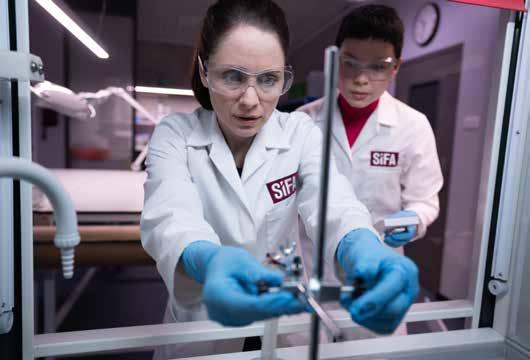
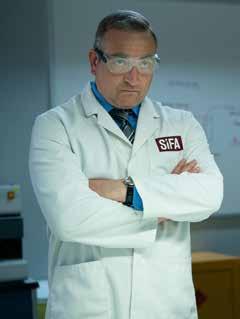
“The original idea for Traces came from a piece of work the University did with the author Val McDermid.”
Professor Niamh Nic Daéid
You can find out more about the Leverhulme Research Centre for Forensic Science at uod.ac.uk/bridge-2024-leverhulme
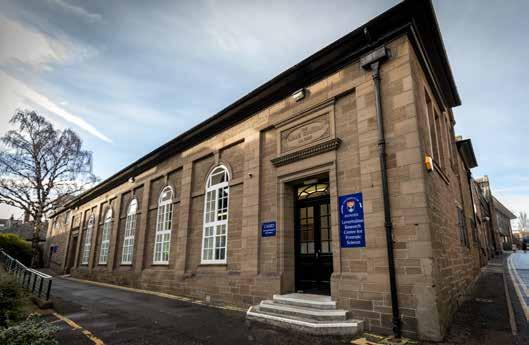
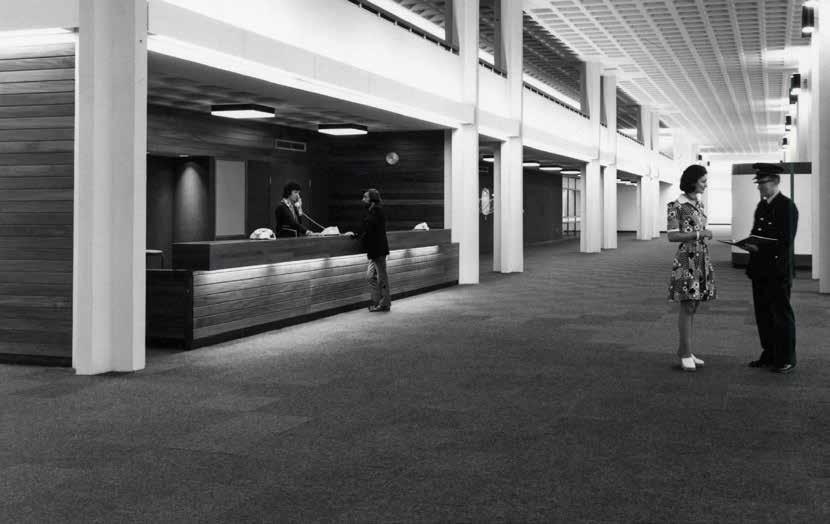
Take a trip down memory lane with University Archives as Dundee’s Ninewells Hospital celebrates 50 years!
For any Medicine alumni of the era – or indeed anyone who had cause to be attending the hospital – these remarkable pictures from the University Archives will transport you back to the early 1970s, as Ninewells Hospital opened its doors and welcomed patients, while also providing a new home for our School of Medicine.
Opened in 1974 by HM the Queen Mother, Ninewells Hospital and the School of Medicine took over from Dundee Royal Infirmary as the principal site of medical teaching for the University of Dundee.
Professor Rory McCrimmon, current Dean of the School of Medicine, said, “When it was opened in 1974 by the Queen Mother, Ninewells Hospital was unique for having the first medical school actually incorporated into its design and build.
“This close relationship between the School of Medicine and the hospital is one of the reasons we are renowned for our undergraduate medicine programme.
We believe in training students as ‘Doctors from Day One’ and this is helped by the fact that our students are exposed to the clinical environment from the very first day.
“This close relationship with NHS Tayside also underpins our world-leading research that very much focuses on the clinical problems facing our society today.”
The ceremonial first sod was cut on the Ninewells site for the new hospital in August 1964 and the foundation stone was laid a year later by Lord Hughes of Hawkhill, Minister in the Scottish Office and former Lord Provost of Dundee. The massive building project resulted in the hospital opening its door in 1974.
As our pictures show, it was a state-ofthe-art facility, although one that clearly predated the desktop computer era! If you have stories and memories of Ninewells in its early days, we would love to hear them, get in touch via alumni@dundee.ac.uk
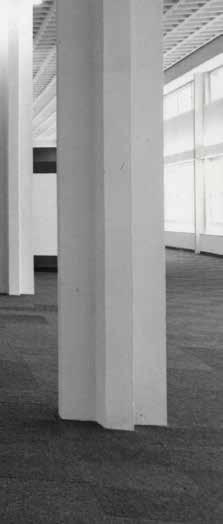
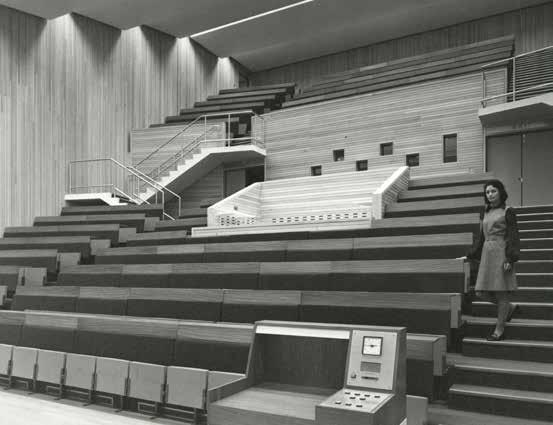
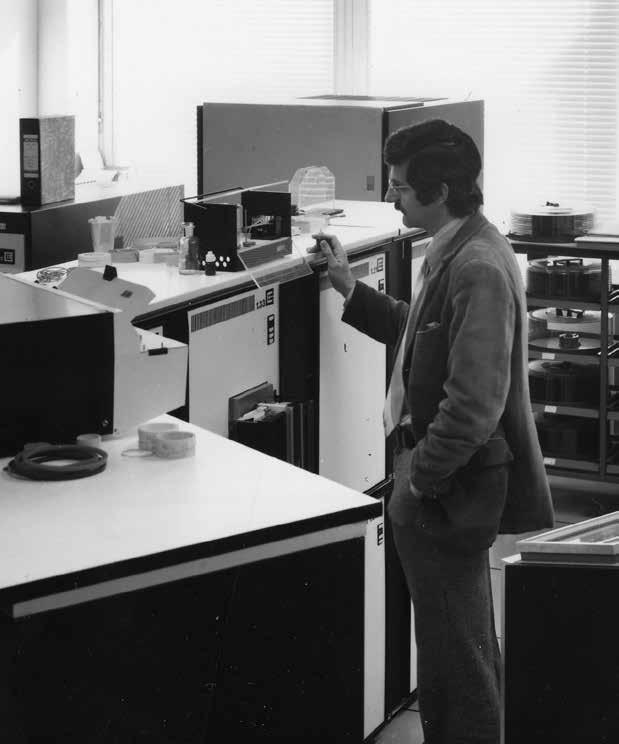
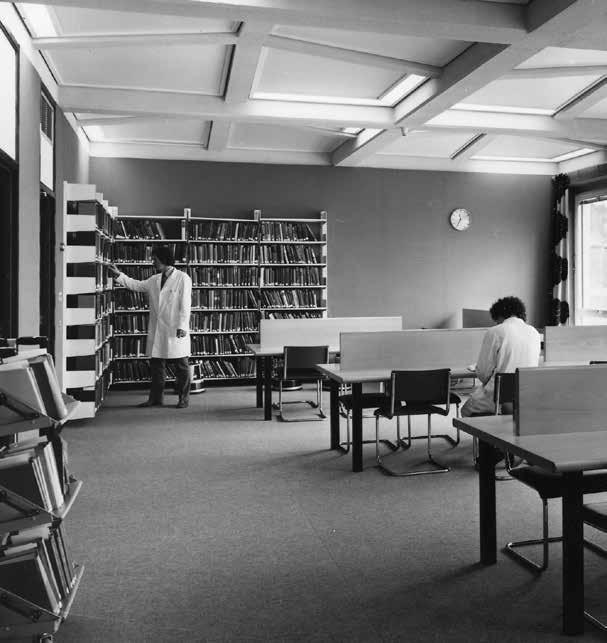
We are a more international institution than ever before, with over 140 nationalities represented in our community and a growing presence around the world, in education and research partnerships. Wherever you are in the world, there will be someone near you who has also been to Dundee.
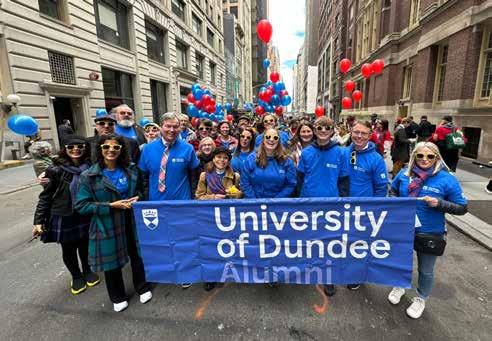
Our vision is to become a truly global institution based in Dundee. We are an international university with our roots firmly in Dundee. We bring students and staff to Dundee from all over the world, and we are engaged with partners around the globe.
Now we are building on these strong foundations to expand our activity and deepen our engagement through our globalisation strategy.
Academically, this means linking with other universities around the world, prime examples including the only joint undergraduate life sciences degree with the National University of Singapore.
We have also recently signed an exciting applied life sciences joint undergraduate degree programme with HAN University of Applied Sciences in the Netherlands, where all
students will have the opportunity for an industry-based internship as part of their programme.
We have research links across the globe and are constantly working to deepen our engagement with partners. Over the last few months, the Advancement team has travelled to South East Asia and New York to meet with our growing alumni networks and groups.
Our recently developed ‘SingASoc’ alumni society hosted an alumni afternoon in Singapore with the Vice Chancellor and Principal, Professor Iain Gillespie, which saw a variety of alumni from all disciplines and across the decades come together.
A dinner with Professor Gillespie in Jakarta, Indonesia, saw alumni connect with each other and offer support to the University through their own contacts and networks. And not to forget,
We have research links across the globe and are constantly working to deepen our engagement with partners.
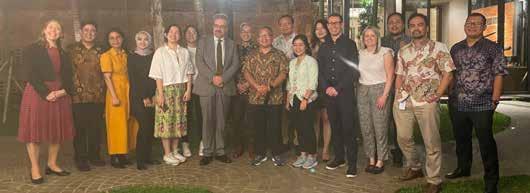
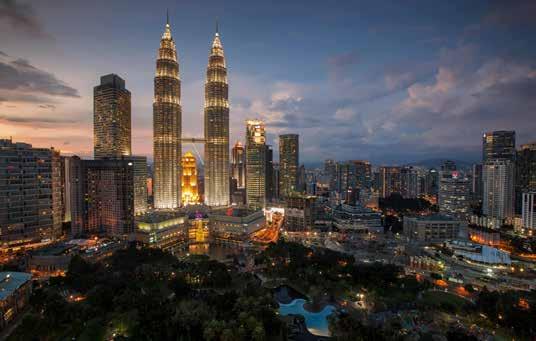
our alumni in Malaysia, who have also recently created an alumni network in Kuala Lumpur, are keen to hear from fellow alumni who would like to get involved.
Lizzi, Leah and Pam from the Advancement team again proudly marched down Sixth Avenue in New York for the Tartan Day Parade alongside alumni, their friends and family. A social gathering followed with graduates from fellow Scottish universities where alumni connected with each other and celebrated all things Scotland. Our New York group have plans over the next year, not just to come together as Dundee graduates, but as alumni of Scottish universities too.
To find out more about the exciting plans of our networks or find out if there is a network where you live, please email: alumni@dundee.ac.uk
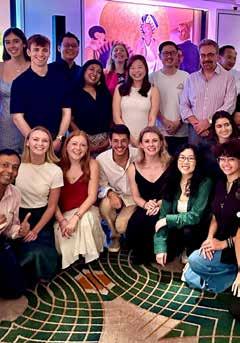
Dundee is a University of Sanctuary, a formal status cementing our ongoing commitment to providing vital humanitarian support.
Since 2017 the University has ringfenced Humanitarian Scholarship funds to provide financial support to incoming refugee and asylum-seeking students from any geography.
In 2022 we awarded 25 Humanitarian Scholarships, 14 were awarded to Ukrainians directly affected by the conflict. In 2023, we launched the only UK Afghan women postgraduate scholarship programme and we welcomed 13 students onto campus supporting their journey into higher education.
The University also partners with CARA (the Council for At-Risk Academics) which provides urgent help to academics in immediate danger and those forced into exile. We currently host PhD students and researchers through this vital scheme.
We also host the Scottish Human Rights Defenders Fellowship programme, a joint initiative with the Scottish Government, a first in Scotland, providing diverse opportunities in research, capacity building, advocacy, holistic security and professional development.
If you would like to help fund a Humanitarian Scholarship, please get in touch via advancement@dundee.ac.uk
Left: The Advancement Team in New York for Tartan Week.
“David was a quiet man with a warmth of character; a deep thinker, reflective and insightful. Married with four children, he was both widely and well-read, a church-goer, and a regular walker. He was an exceptional letter-writer, and on a Sunday afternoon, after lunch, he could be found in his armchair listening to classical music on the record player, and later in the evening writing letters to each of his four children once they’d left home and moved away.”
Jenny Howell, David Smith’s younger daughter
In the world of civil engineering, David Smith is remembered for his innovations and his deep integrity.
David's journey from a practising civil engineer to an esteemed lecturer is testament to his passion for both the practical and academic aspects of the field. Now, his legacy is honoured through the David Smith Award and Memorial Seminar. From his early days at Sir Bruce White Woolf Barry & Partners, David Smith's career was distinguished by a series of significant contributions to the field of civil engineering. Initially working in India to hone his skills, his tenure at Mott Hay & Anderson proved to be the defining chapter in his career. Here, he spearheaded the design of the new London Bridge and the main towers of the Forth Road Bridge near Edinburgh. His innovative approach has influenced the design of suspension bridges ever since.
Subsequently David discovered a passion for teaching and research, and his transition to academia proved to be a pivotal moment. In the years that followed, he was revered for his integrity, modesty, and dedication to nurturing the next generation of engineers. At the University of Dundee, he quickly endeared
himself to students and colleagues alike, imparting not only technical knowledge but also invaluable wisdom and guidance.
The establishment of the David Smith Award reflects David's commitment to fostering excellence and broadening horizons in engineering education. The award, available to postgraduate research students within the School of Science & Engineering, aims to provide opportunities for international experiences through participation in specialised summer schools, collaboration with research groups abroad, or engagement in practical applications of research.
The David Smith Memorial Seminar, delivered by award recipients when they return, is a tribute to David’s legacy. This annual event serves as a platform for award recipients to share insights into their experiences and advancements in their field as well as to inspire other students to apply for the award. It offers a personal and professional development opportunity, enabling the presenter to engage with academics, peers, and external stakeholders.
He spearheaded the design of the new London Bridge and the main towers of the Forth Road Bridge near Edinburgh. His innovative approach has influenced the design of suspension bridges ever since.

Previous winners have spent intensive weeks in places such as CERN in Switzerland, and the University of Milano-Bicocca in Milan. The 2024 winner of the award, Amin Din, travelled to Switzerland to gain insight and conduct research at the European organisation for nuclear research – CERN. Prior to travelling to CERN, Amin said, “This visit will give me the opportunity to understand the problem in more detail, collect more data and expand the knowledge on this subject. This award not only has the ability to enhance my thesis content but also opens up new career prospects for me.”
The David Smith Award and Memorial Seminar are supported through donations to an endowed fund from those who were inspired by David, and by engineers around the world who recognise the huge impact he had on their field. David Smith's legacy will continue to empower future generations of engineers to reach new heights, both in their academic pursuits and in their contributions to society at large.
If you would like to make a gift to support the David Smith Award and Memorial Seminar, please email development@dundee.ac.uk
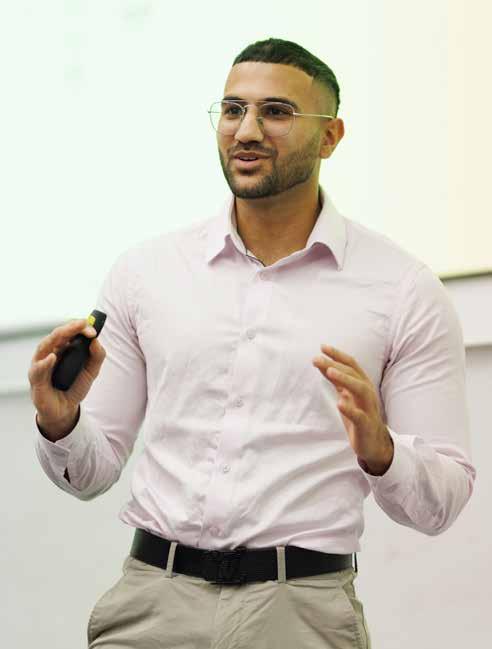 Amin Din presenting his work at the David Smith Memorial Seminar in January 2024
Amin Din presenting his work at the David Smith Memorial Seminar in January 2024
The University’s Access Summer School has helped thousands qualify for a higher education, supporting students to achieve their career dreams and aspirations.

A University education can be a gateway to a wide range of career prospects, opening up countless opportunities and experiences. However, for many bright and aspiring applicants their circumstances can create many challenges, preventing them from accessing Higher Education. Bringing these opportunities within reach for ambitious minds can reset futures and rewrite life stories. The University of Dundee’s Access Summer School programme transforms lives by providing a free, alternative route for deserving students to pursue their academic dreams, allowing them to reach their full potential.
Since its inception in 1993, Access Summer School has a proven track record, helping over 3,000 aspiring students to qualify for university. This has helped to build solid foundations for applicants, allowing them to grow, learn and reach heights they never believed possible.
In the last four years alone, a remarkable 73% of Access Summer School students have gone on to study at the University of Dundee, opening doors to a brighter future filled with possibilities.
The Summer School environment is designed to not only improve academic skills but also to create a safe space for applicants to explore the university world before committing to it.
Nicola McGuigan joined the Access Summer School in 2019 before embarking on a degree in Dentistry. When considering joining the Summer School, Nicola was unsure if leaving home and making the move to university was something she was ready for. After weighing up her options, Nicola took the plunge and decided to spend her summer at Dundee. She was able to stay in university accommodation throughout Summer School and face her fears head-on.
“Staying in the student accommodation had a really big impact on me as I’d never lived away from home before,” said Nicola. “I believe this was what led to me coming to the University of Dundee. I fast became friends with the others staying in the same flat, so I never felt alone in the short time I spent in the city.
“I gained independence by coming to the Summer School. It allowed me to gain confidence living on my own and made me realise it would be irrational to give up an amazing opportunity due to fear.”
Being the first person in your family to attend university can be quite a daunting prospect. Students in this position can rely on the Access Summer School to instil a comprehensive understanding of what will be expected at a university level.
Over the past four years, over 1,000 aspiring students have taken part in Access Summer School, gaining a valuable introduction to the University and the city, all while preparing themselves for academic success.
Students undertake a series of core and optional taught modules, designed to bridge the gap between high school and university coursework. Students are also encouraged to learn independently, helping them to develop their learning style and provide them with a head start when they begin university.
When discussing her Summer School experience, Nicola said, “A moment that stood out to me during my summer was getting hands-on experience, receiving guidance on drilling a fake tooth.
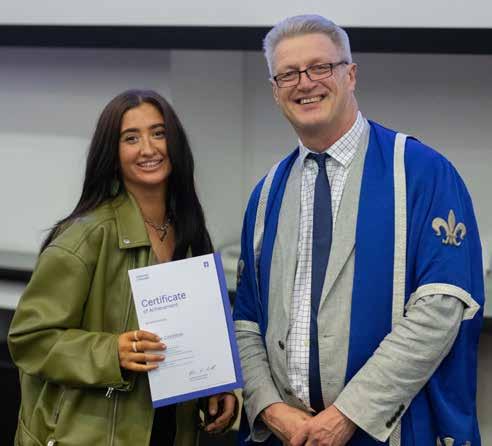
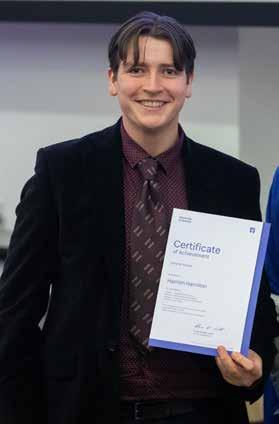
“This was unlike anything I had ever done before and was a great experience of what was to come when starting Dental School.
“Not only did the Summer School prepare me for leaving home, but it also allowed me to decide if dentistry was the right fit by finding out more about the way the School operated and meeting my future lecturers.”
The University of Dundee’s Access Summer School is a unique initiative in Scotland.
The free, five-week programme is designed as both an online and on-campus experience that goes beyond helping students qualify for university. It provides the tools and support to ensure they stay on track during their degree and flourish throughout their academic journey.
Please consider donating today and changing a young person’s tomorrow. With every £1000 raised, the University of Dundee can offer a free, fully supported place at Access Summer School in the summer of 2025.
If you would like to help transform a young person's life, you can make a gift on our website, uod.ac.uk/bridge-2024-accesssummer-school
A ten-week, fully funded internship at one of Scotland’s most prestigious cultural venues will help transform the careers of Duncan of Jordanstone (DJCAD) students.
The Allan Internships, available to DJCAD Masters students, will help 21 students over the next three years gain crucial real-world experience at V&A Dundee and provide unparalleled opportunities in the art and cultural sector.
Generously funded by Tim Allan CBE, the design museum’s Chair, these internships cement the ties between two of the cities foremost institutions, providing a pipeline from education to industry for some of the country’s top creative talent.
Tim Allan said, “I am delighted to be able to support the University of Dundee through a three-year commitment to the Allan Internships, offering Masters students from Duncan of Jordanstone College of Art & Design the opportunity to undertake these placements with the support of a living wage stipend.
“The role that culture plays in the coherence of our society has never been more important and it’s a privilege to be able to support the next generation of creative talent as they explore and refine their practice through practical experience. The future is safe in their hands.
“As Chair of V&A Dundee, our partnership with the University of Dundee is of great significance to me, and the Allan Internships programme is an excellent demonstration of how it continues to flourish.”
As well as offering this unique opportunity to students, Tim wanted to ensure that students taking part in the internship do not have to undertake an additional, paid job to support their studies. The Allan Internships are fully funded, with interns receiving the Real Living Wage to support them financially, allowing them to fully immerse themselves in their internship, gain new skills and make a real impact on real projects.
Abhijith Mohan took part in the first cohort of internships, working in the Operations department of the museum in May 2023. His internship focused on waste management and the promotion of net zero opportunities at the V&A Dundee. During his time on site, Abhijith had the opportunity to create prototypes and action plans on how the museum can increase its recycling.
Commenting on the internship, Abhijith said, “It was an excellent opportunity. The internship
at V&A Dundee helped me gain experience collaborating with people from multi discipline backgrounds and engaging with the major stakeholder of the museum.”
Following his internship in May 2023, Abhijith graduated in Product Design with distinction and was awarded the Duncan of Jordanstone MSc Masters Prize for Product Design.
“As a student I experienced financial issues and the financial support I received from the Allan Internship Programme offered me the opportunity to fully experience this internship and get industrial experience and knowledge. This has given me foundational experience towards product design jobs. I believe that the internship at the V&A will definitely help with future work,” he said.
Lynne Martin, Strategic Lead for Design for Business at the V&A Dundee reflected on what the internships meant for the V&A team.
“Working with the students who take part in the Allan Internships is such a joy. They bring a fresh perspective to the work we do and they have an uncanny ability to spot an opportunity and just go for it – they make things happen.
"Among other great initiatives, the interns have helped us implement ways in which to reduce waste and have prototype design trails for the museum that can be developed further. We love bringing the students on board as their energy, great attitude and new perspectives bring out the best in us while we provide them with the support to apply their knowledge and learn in new ways.”
The University is incredibly grateful to Tim Allan for his generosity and determination to promote the development of our students. Sharifa Hawari-Latter, Head of Design & Making and Communication Design at DJCAD, added, “These internships provide a meaningful way for students to connect with the city and gain invaluable experience that will help shape their future careers. Such opportunities for collaboration and innovation would not be possible without the foresight and generosity of supporters like Tim Allan CBE.”
If you are interested supporting student initiatives at the University of Dundee you can make a gift to support our Scholarships and Bursary programme.
Please contact advancement@dundee.ac.uk for further information and ways to give.
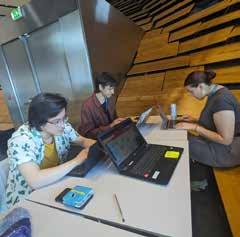
“Working with the students who take part in the Allan Internships is such a joy. They bring a fresh perspective to the work we do and they have an uncanny ability to spot an opportunity and just go for it –they make things happen.”
Lynne Martin
Strategic Lead for Design for Business at the V&A Dundee


Following the resounding critical and public success of the V&A Dundee’s Tartan exhibition in 2023, a new blockbuster exhibition, Kimono: Kyoto to Catwalk opened on 4 May.
Showing the kimono as a dynamic, everevolving icon of fashion, the exhibition traces its evolution and influence from 17th century Japan to today’s cutting-edge couture and street fashion across the world.
The V&A Dundee team is exploring an international tour for Tartan and when dates are announced, the University’s Advancement team hope to coordinate complementary alumni activities across the world.
Image courtesy of V&A Dundee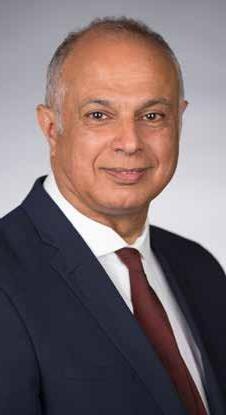
“Dundee
provided me with the key break I needed to join the world of medicine. I also met my wife there when I was 18 and hold many close friendships that I formed in the city.”
Professor Kamlesh Khunti CBE
Kamlesh Khunti CBE
From Africa to India, Leicester to Dundee, Professor Kamlesh Khunti’s work has had a profound impact on patient care and treatment of diabetes and cardiovascular disease.
This year, Kamlesh celebrates 40 years since his graduation from the University of Dundee’s School of Medicine.
Now a Professor of Primary Care Diabetes and Vascular Medicine at the University of Leicester, Kamlesh holds an array of impressive titles and roles resulting from his hard work and dedication to medicine. Kamlesh is also the Director of the National Institute for Health and Care Research (NIHR), Applied Research Collaboration (ARC) East Midlands, and the founding Director of the Centre for Ethnic Health Research and the University of Leicester’s Real World Evidence Unit.
Born in Africa, he moved to India and then to Leicester at age 9. Kamlesh attended an innercity school in Leicester and was aware of health inequalities from an early age which influenced both his life course and research priorities.
“Several of my male relatives suffered from heart disease or diabetes when they were young. I also very sadly witnessed my
father suffer through several heart attacks and strokes. However, this motivated me to pursue a research career in diabetes and cardiovascular disease, as I recognised that important advancements in medicine and technology supported my father’s recovery. He went on to live to the age of 79.”
After attending the University of Dundee, Kamlesh started out as a full-time GP at a practice back in Leicester. He was instrumental in it becoming a medical teaching hub, a training practice to guide postgraduate doctors to become GPs, and a research centre. He was a GP partner at the practice until 2020 and continues to work there as a GP 34 years later, now seeing his third generation of patients and their families.
Internationally recognised for his contribution to major advances in addressing type 2 diabetes and cardiovascular diseases, Kamlesh has successfully published more than 1,400 academic papers throughout his career. He was awarded a CBE in the 2022 New Year Honours for services to health.
His work has helped improve the health of ethnic minority communities, and he led
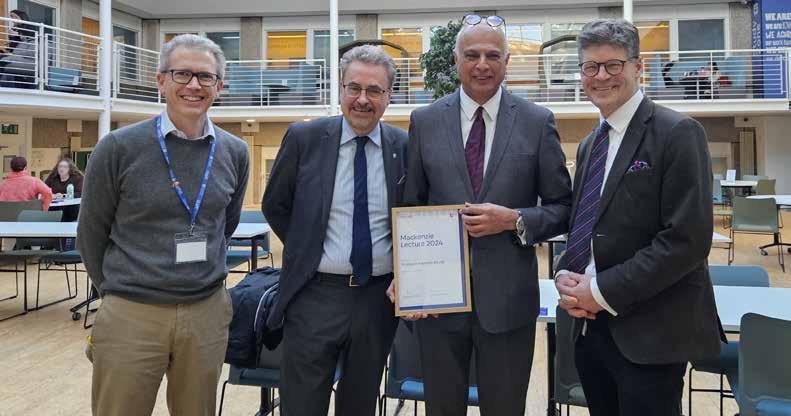
a body of influential research throughout the pandemic, becoming a member of the Scientific Advisory Group for Emergencies (SAGE), and a Chair of the SAGE Ethnic SubPanel. He was one of the first to recognise the disproportional impacts of COVID-19 on people from ethnic minorities.
In June 2023, Kamlesh was presented with an honorary degree from the University of Dundee for his profound and enduring contributions to improving the lives of people living with diabetes. Furthermore, the School of Medicine was delighted to welcome him back to Dundee in January where he delivered the 13th Mackenzie Lecture, titled ‘Journey of an Inner-City Researcher: from Africa to Dundee’. The annual Mackenzie Lecture is in honour of Sir James Mackenzie, a pioneer in research into the safe use of medicines and primary care research.
Making a difference and personal experience are key drivers for his work. He passionately believes in the importance of learning from local expertise, the value of learning from other countries, the role of civil society as a critical friend to government,
finding appropriate relationships between science and policy, and recognising the necessity of viewing issues through an equity lens.
Kamlesh explained that he has many fond memories of his time at university, “Dundee provided me with the key break I needed to join the world of medicine. I also met my wife there when I was 18 and hold many close friendships that I formed in the city.”
Kamlesh continues to be dedicated to his research and the growth of Leicester Diabetes Centre, where he is co-director, and where over 180 people are carrying out studies designed to improve the lives of people with diabetes, with the centre receiving global recognition for its leading research, education and innovation. His current work investigates multiple longterm conditions and explores improvements in the health and treatment of people living with multiple conditions.
Although his career still keeps him very busy, the role of family continues to play an important part in his life, and he is loving the opportunity to spend quality time with his sixmonth-old grandson.
Professor Rory McCrimmon, Dean of Medicine at the University of Dundee, is currently the Lead Clinician for the Scottish Diabetes Research Network, which supports the setup and delivery of clinical and epidemiological research across Scotland.
Some of their research tracks realtime clinical information on all 350,000 people with type 1 and type 2 Diabetes in Scotland.
The Diabetes Research Register also has over 16,000 consenting patients who have agreed to be contacted about research for which they are eligible.
If you would like to support the University’s work in this area, you can find out more on how to give back on our website uod.ac.uk/ bridge-2024-greatest-need-diabetes
Here at the University, we’re not just tackling healthcare’s biggest challenges, we’re also redefining what it means to be healthy and happy. Settle in and explore these inspiring wellbeing initiatives, all made possible by the generosity of people like you. We’ll also meet some everyday heroes who are making a difference in their own way.
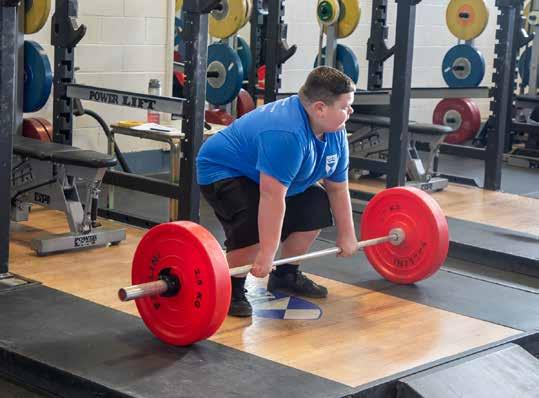
“Active Strength is more than just building muscles,” says Callum McGregor, Strength and Conditioning Coach from Sport and Active Health (formerly the Institute of Sport and Exercise). “It’s about building confidence and establishing healthy exercise habits from a young age.”
Generously funded by trusts and foundations, including the Kilpatrick Fraser Charitable Trust, Active Strength introduces children between the ages of 9 and 13 with
lower activity levels to strength-training in a safe and supportive environment.
“With close supervision, children learn exercises commonly found in weight training, such as deadlifts, bench-presses and back squats,” Callum continues.
“By helping young people to discover the joy of movement, we are laying the groundwork for lifelong healthy habits that can increase confidence and self-esteem, building the foundation for a happy and fulfilling life.”
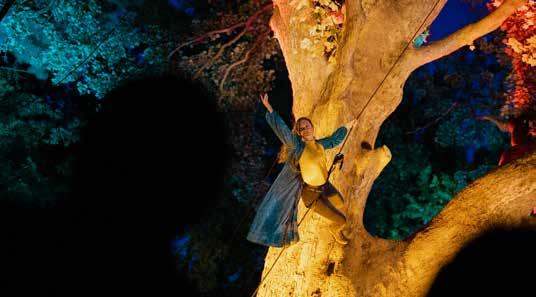
“University life can be demanding,” says Fiona Watt, Acting Health Service Manager. “There’s a powerful connection between physical activity, mental health, and wellbeing. However, access to exercise isn’t always a given.”
Healthy Body, Healthy Mind bridges that gap. “Students who are facing mental health concerns can be referred to the programme. Once referred, students who are also experiencing challenging financial circumstances are given free access to Sport and Active Health at the University for 12 weeks, enabling them to explore the diverse range of sport and exercise options on offer,” Fiona explains. “The students are also paired with a specialist health and fitness instructor, who helps ease their anxieties.”
Thanks to a recent generous donation of £1,000, 13 students have benefitted from the programme. “Healthy Body, Healthy Mind helps students to unlock the physical and mental benefits of sport and exercise. This can lead to improved stress management and focus, and the development of healthy habits for longterm wellbeing.”
This year’s Festival of the Future takes a unique approach to wellbeing with ‘Over the Garden Wall’, an immersive experience at the University’s Botanic Garden kindly supported by The Lennox Hannay Charitable Trust.
“Over the Garden Wall weaves together music, light installations, performance, and the natural world to create a captivating environment where visitors can unwind, recharge, and rediscover the beauty of the world around them,” says Emma Preston, Cultural Projects Manager within the University’s Research and Innovation Services.
“Wellbeing is more than just physical health,” she emphasises. “Sometimes it’s about sparking creativity, reconnecting with nature, or finding peace.”
“This immersive experience offers visitors the opportunity to escape the pressures of daily life, reconnect with themselves and others, and discover the restorative power of nature and art.”
From confidence-building strength training to stress-reducing nature experiences, these are just a few University initiatives making a real difference thanks to the generosity of individuals like you.
We are fortunate to be surrounded by passionate individuals, who are dedicated to improving the lives of others. Here, we celebrate two inspiring stories:
Through her tireless fundraising efforts selling hand-painted slates, Sylvie has raised over £7,500 for the Dundee Parkinson’s Research Campaign. Her dedication helps bring our researchers closer to crucial breakthroughs in developing new treatments for this debilitating disease.
Thanks to a clinical trial, Ken’s oesophageal cancer is now in remission, allowing him to celebrate precious moments he thought he’d never see. Deeply grateful, he and his wife, Betty, celebrate each milestone with a donation to Ninewells Cancer Campaign, funding vital research that could help countless others on their own cancer journeys.
Feeling inspired to create positive change?
We invite you to join us in building a healthier, happier community! Learn more about how you can get involved by visiting: uod.ac.uk/bridge-2024-mental-healthweightlifting
If you are a student experiencing mental health difficulties that would benefit from short term, targeted mental health nursing input, please visit our webpage at: uod.ac.uk/bridge-2024-greatest-needweightlifting
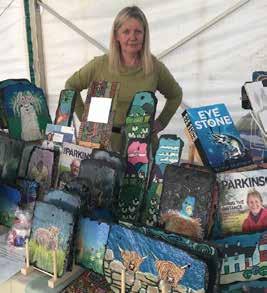 An aerial artist performs at the University's Botanic Garden
An aerial artist performs at the University's Botanic Garden
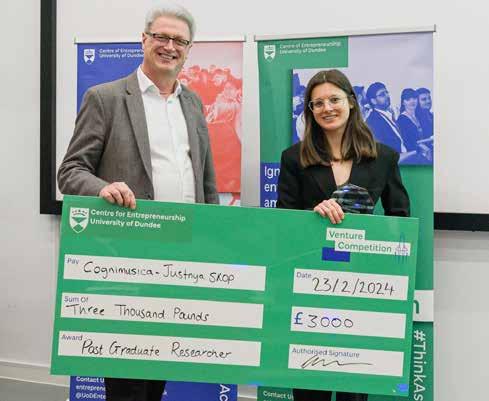
As a university, everything we do links back to the question of how our research and teaching can make an impact both here in Dundee, and further afield.
The Venture Competition was set up as part of our drive to instil social purpose amongst staff and students.
Venture recognises students, staff, and recent graduates who have a business idea that can make a real difference to society with prizes ranging from £1,000 to £12,500. The 2024 competition was the biggest to date, with a record £78,500 prize fund and 18 individual concepts receiving significant cash prizes.
Amongst the winners is Justyna Skop, and her company Cognimusica. Justyna, a postgraduate researcher studying for her PhD in Cognitive Neuropsychology, founded the company based on her belief that music could play a significant role in helping cognitive
development within children. Through this belief, and her background in music tutorship and language science, she was able to create a compelling business case.
The University recognised her and her business’ potential with a £3,000 prize, sponsored by the Doctoral Academy.
Cognimusica is a pioneering venture that blends music theory, therapy, and instrumental training for children. Drawing from her eight years of experience as a music tutor and her background in music therapy, Justyna recognised the potential to bridge the gap between traditional instrumental training and music therapy, creating a unique space where children can benefit both musically and cognitively.
Her vision for Cognimusica is a mission to open accessibility to music therapy and instrumental training, especially for children
Justyna's vision for Cognimusica is a mission to open accessibility to music therapy and instrumental training, especially for children who are neurodivergent, have mild learning difficulties or come from underprivileged backgrounds.
who are neurodivergent, have mild learning difficulties or come from underprivileged backgrounds. By combining elements of cognitive sciences, psychology, and music education, Justyna aims to unlock the full potential of musical learning as a tool for cognitive development.
Justyna’s growth, vision and success over such a short time is an inspiration. She has a clear mission and drive to deliver a meaningful social difference and embodies the University’s vision to transform lives through social purpose.
Well done Justyna and all the Venture winners. We wish you the best of success as you drive your businesses forward.
You can read details on all our Venture Competition winners on our webpage at uod.ac.uk/bridge-2024-student-success
Professor Blair Grubb, Vice-Principal (Education) with Venture winner Justyna Skop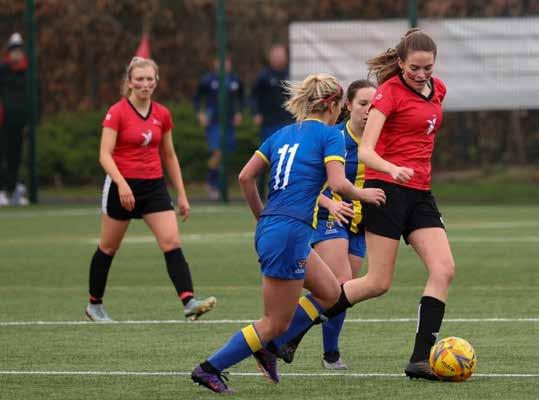
From biomedicine to the arts, the University helps nurture the next generation of inspirational leaders. A recent example of this is fine art student, Claire Tytler, who won Student Photographer of the Year for her Life in the City portfolio at the Scottish Nature Photography Awards.
The theme of this year’s competition was Coexistence, and Claire took inspiration from how nature and wildlife cohabitate and thrive in the densely populated urban space of Dundee. Claire’s work was praised by the judges for its ‘small details that we pass by every day, yet they are interwoven with our lives’.
Claire’s ability to see the sometimes-missed natural beauty amongst our urban campus is inspiring. Well done Clarie for winning such a coveted award.
Every March the battle lines are drawn between the University of Dundee and Abertay University, marking the chance for our sports teams to go head-to-head for the Tay Varsity Challenge Trophy. Now in its 15th year, the event includes student teams from a wide range of sports, from football and rugby to archery and pool.
Despite tough and well fought matches, the University of Dundee students did us all proud, outright winners of 19 of the 22 games. An amazing achievement.
Maia Gillespie, a dentistry student and hockey player, said, “The rivalry was quite intense. Everyone was trying their best, but it was good fun.” Maia’s teammate, Hannah Ritchies, a fine art student, added, “It’s great to see everyone come together. We’ve watched lots of different sports, but the women’s hockey has been the best. There was a great turnout and lots of cheers.”
Congratulations to all who took part, and those who came to cheer on from the side lines.
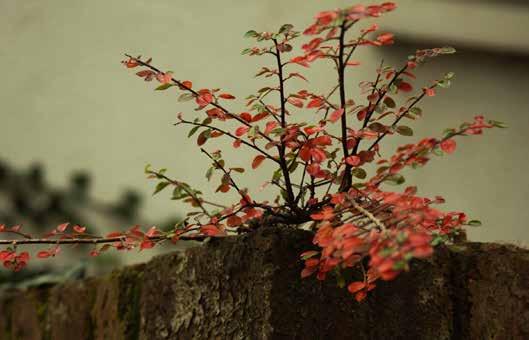
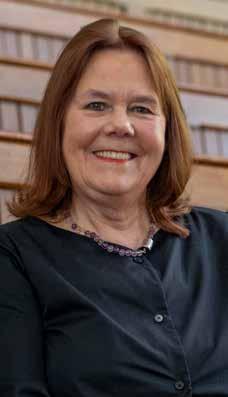
The Rt Hon. Baroness Clark of Calton shares how the University sparked her interest in law reform and how she encourages students to think of the bigger picture.
“If I was teaching again I would want to inspire students to see that no matter which subject they are studying, they can and should be making a difference in their fields.”
Lady Clark of Calton
Dundee-born Lynda Clark has held many impressive titles throughout her long and illustrious career.
Currently known as The Rt Hon. Baroness Clark of Calton, with a judicial title Lady Clark of Calton, some of her previous roles have included Judge at the Court of Session in Scotland, Privy Councillor, and MP.
In the 1970s, Lynda was a law lecturer at the University of Dundee, shortly after completing her LLB at the University of St Andrews in 1970, followed by a PhD at the University of Edinburgh.
As a young academic with a passion for stimulating debate around the theory and socio-legal aspects of law, Lynda says she was ‘happily teaching away’ at the University of Dundee.
That was until she took charge on her first case, in 1975, through the University’s law clinic, the Dundee Legal Advice Centre, which had recently opened offering free legal advice to the community and ran until the 1990s.
“I hadn’t been in a solicitor’s office or dealt with clients at that point, my first experiences of that were through the law clinic,” she said.
“A man who came into the law clinic had a problem in employment law. There wasn’t much expertise in that area of law in the city at the time – but he’d come to the one place where there was some knowledge.”
Employment law was at the time the subject of many reforms. The Trade Union and Labour Relations Act 1974 had just come into force, and the theory and background of these changes were part of the law course.
“I looked at his case and thought he had been treated really badly,” she said, “but that a legal remedy was available under new law. I felt sorry for him and was determined to help him.
“That was when I did my first oral advocacy. It gave me a taste of law in action that I’d not had before.”
The law clinic was a new concept then, having been set up by the late Professor Ian Willock, a well-renowned Professor of Jurisprudence and law lecturer at the University of Dundee, who also taught Lynda as a student.
Alongside other staff, law students and volunteer solicitors, Lynda continued to become more involved with the clinic, then based in an empty shop unit, near the Hilltown.
It was a dynamic time of reform in many areas of law due to public campaigning from various workplace unions and many pressure groups focusing on issues such as child protection laws and sex discrimination laws.
Inspired by Professor Willock’s teaching style, Lynda encouraged her students to think beyond ‘black letter law’ and consider the social setting and context of the issue to help understand the legal principles.
“I was always interested in the bigger picture – how and why have we got to this stage? I’d encourage all students to think of their subject in a wider context.
“If I was teaching again I would want to inspire students to see that no matter which subject they are studying, they can and should be making a difference in their fields.”
Lynda was called to the Bar in 1977 and took silk in 1989, becoming the third woman in Scotland to be made QC (Queen’s Counsel).
But with her strong spirit for change, Lynda’s next ‘calling’ came in 1997 when she stood as a Labour candidate and was successfully elected as the MP for Edinburgh Pentlands. She was re-elected in 2001.
Her passion for legal reform took her deep into the legislative side of politics, and she was made a minister as the first Advocate General for Scotland in 1999.
This role included advising the UK Government on Scottish legal issues from a UK perspective, and new powers and duties under the Scotland Act 1998 which introduced devolution to Scotland, with a reconvened Scottish Parliament.
After her parliamentary appointment, Lynda went on to become a Judge in the Court of Session, dealing with both civil and criminal cases and was later appointed to the Appeal Court. She also became chairwoman of the Scottish Law Commission, which looks at legal reform.
Lynda now sits as a cross bench peer in the House of Lords after retiring as a judge in 2019.
She sat on the Court of the University of Dundee for a few years until 2021 and was awarded an honorary degree from the University in 2007.
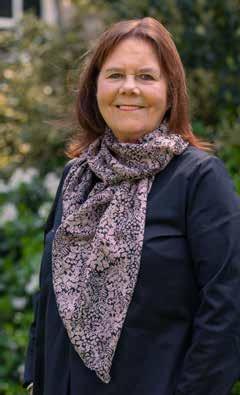

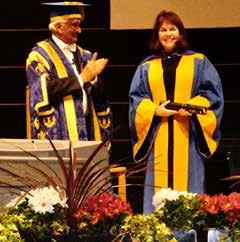
Members of the public have accessed free legal advice from our law students, supported by staff and legal professionals.
The new University of Dundee Law Clinic (UDLC) opened in February 2024 and has already dealt with scores of cases in a variety of legal areas including family, personal injury, wills and powers of attorney, employment, and property.
A voluntary student administration team acts as the first point of call for clients, responds to enquiries and administers appointments. A small group of current law students were trained as ‘advisers’ to undertake the first appointments.
Enquiries were received internally from students and staff as well as from members of the public. Each of the students involved have undertaken at least one case with two more students taking on a second.
Rebecca Samaras, the University’s Director of Clinical Legal Education who runs UDLC said, “We ensure that our clients can access the legal assistance they might not otherwise be able to afford.
“We're committed to building on this momentum and expanding our services to reach even more members of our community.
“It is our intention to leverage this success to further innovate and refine our services, ensuring continued positive impact for our students and the community.”
UDLC is operating on a pilot basis until September when its resources will be expanded.
You can find out more about the University of Dundee Law Clinic (UDLC) by visiting uod.ac.uk/bridge-2024-law-clinic
To ensure the ongoing success of the Law Clinic, you can make a gift to support its operating costs. Visit uod.ac.uk/bridge-2024-donatelynda-clark
The Study UK Alumni Awards, run by the British Council, celebrate the achievements of international students who have studied in the UK and gone on to achieve great things. This year, 33 University of Dundee alumni entered the awards from across the globe.
This year has seen the accomplishments of five of our international alumni recognised at the Study UK Alumni Awards.
LLM Law, 2020 Compliance and Export Control Manager at Schneider Electric Finalist in Science and Sustainability category, Kazakhstan
An expert in the field of legislation and compliance, Alina has contributed to the establishment of advanced sanctions compliance and export control institutes with minimal impact on business and employees. This has enabled companies to develop sustainably and confidently, despite today’s challenging times and geopolitical realities.
Alina believes that knowledge, analytical skills and methodologies she acquired at the University of Dundee, where she graduated with a distinction, helped her to flourish in this role. She successfully helped her organisation implement an effective export control process, recognised internally as the most advanced in the entire Schneider Electric group.
Alina is passionate about helping her country to be sustainable and believes raising awareness on compliance culture is essential to this. She has participated in English Law Week in Central Asia and was invited to contribute to a scientific article on sanctions with the Organization for Security and Co-operation in Europe (OSCE).

Alina believes that knowledge, analytical skills and methodologies she acquired at the University of Dundee, where she graduated with a distinction, helped her to flourish in this role.
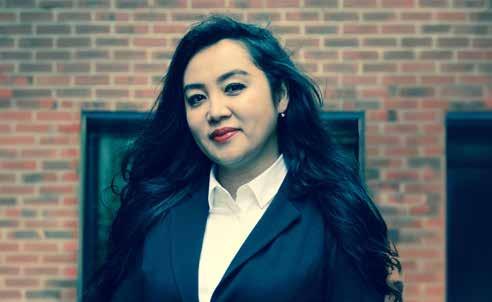
LLM Mineral Law and Policy, 2019
“My mission went beyond just boardroom discussions. The world needed to hear our stories, our successes, and our dreams."
Gulzhan Kozhabayeva
Head of Compliance, Intergas Central Asia JSC within QazaqGaz National Gas Company Winner of Business and Innovation award, Kazakhstan
Gulzhan began her journey as a lawyer in 2004 in Kazakhstan. She worked her way up through Kazakhstan’s energy industry before her thirst for knowledge attracted her to study in the UK.
“Over 12 years, the mines, oil fields, and gas rigs were not simply workplaces, they were my learning centres. I was often the only woman in a room filled with male counterparts, negotiating with foreign magnates, bridging ties with our government, and pioneering legal departments,” said Gulzhan. “With each challenge, I made my way up the corporate ladder, standing tall amongst seasoned professionals, a testament to the fact that gender should not be a barrier to excellence.”
Following her MBA from the University of Liverpool, Gulzhan was successful in obtaining a Rio Tinto Excellence Scholarship from the University of Dundee and completed her LLM in Mineral Law and Policy within the Centre for Energy, Petroleum and Mineral Law and Policy.
“My journey in the UK, particularly at Dundee, not only offered me an enriching academic experience but also provided me with the opportunity to share my knowledge, inspire, and collaborate on a global scale.”
Graduating with a distinction in 2019, Gulzhan was drawn to the city of London where she volunteered at the International Women in Mining Association, serving as their Legal Manager before following her heart and returning to Kazakhstan.
“A deep-rooted desire to give back to my home country took shape in 2020 when I established the Women in Mining Kazakhstan community. It was the dawn of a new era for Central Asia, a movement to bring about gender equality in the mining sector. The challenges were immense; from navigating through a global pandemic to setting up a diverse Non-Executive Board and securing sponsorships, every step was taken with precision.
“My mission went beyond just boardroom discussions. The world needed to hear our stories, our successes, and our dreams. I wrote about the women of our association, highlighting their achievements in a local industry magazine. The attention this brought saw many of our members ascend to more prominent roles, and our humble association gained a global footprint.”
In addition to the groundbreaking achievements accomplished through the Association for Women in Mining, Gulzhan successfully helped campaign to remove a legacy in Kazakhstan dating back to 1932 which prohibited women from engaging in specific professions.
Admitting that her journey has been full of ups and downs, Gulzhan was thrilled to be recognised amongst the ‘100 Global Inspirational Women in Mining’ by Women in Mining UK in 2022. She felt that this was not only a personal achievement, but a nod to every woman striving for a stronger, safer and more sustainable mining industry.
Her accomplishments were further recognised this year when named a winner at the Study UK Alumni Awards in Kazakhstan.
Gulzhan added, “I’m committed to continuing to advocate for sustainable mining practices and empowering women in the natural resources sector, contributing to global efforts for equitable and environmentally conscious resource management.”
Continued over
BEng Mechanical Engineering with Renewables, 2019 Spacecrafts Engineer at Hellas Sat Finalist in the Science and Sustainability category, Cyprus and finalist in the Global Awards
Charis had a curiosity for Science, Technology, Engineering and Mathematics (STEM) since his childhood, growing up in the small country of Cyprus. This would later lead him to venture to Scotland to complete a degree in Mechanical Engineering at the University of Dundee.
His thesis resulted in the creation of the Wind-E portable wind turbine, designed for charging electronic devices in outdoor settings. This innovation made the final in Cyprus’ Climate Launch Pad 2020 competition and secured a spot as one of the 16 best ideas in the award's regional finals in East Europe, Middle East, and Central Asia. Furthermore, Charis represented Cyprus at the global finals, where it was named one of the best 68 startups from around the world.
Joining Hellas Sat in July 2019, he passed engineering exams with aerospace giants AIRBUS, Thales Alenia and Lockheed Martin. At age 22, he achieved the title of Youngest Spacecrafts’ Operator. His leadership qualities and support for nurturing young talent through mentoring also earned him a place in the Global 20 under 35 from the Society of Satellite Professionals International. He was invited to Silicon Valley, California to receive this prestigious award in recognition of his achievements.
Charis says his journey to success was deeply intertwined with his experience of studying at the University of Dundee. Not just an academic endeavour but a transformative and life-altering experience.
As a board member at NGO Together Cyprus and serving as both a coach and jury member for the Junior Achievement programme, Charis remains committed to fostering entrepreneurship while inspiring individuals to pursue their aspirations and contribute positively to the realm of STEM.

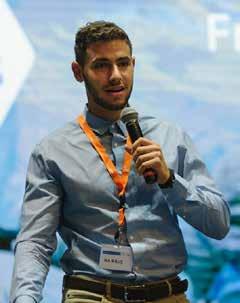
Charis says his journey to success was deeply intertwined with his experience of studying at the University of Dundee. Not just an academic endeavour but a transformative and lifealtering experience.
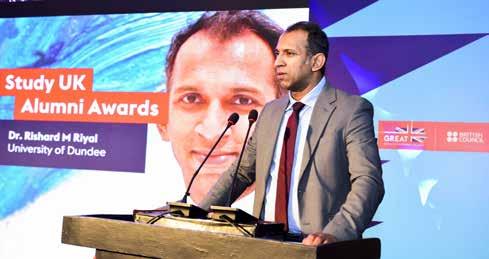
PG Certificate in Medical Education, 2017
Honorary Consultant and Senior Lecturer in the Department of Obstetrics and Gynaecology at the University of Colombo Winner of the Science and Sustainability award, Sri Lanka
When Dr Rishard ventured to the UK from his home country of Sri Lanka in 2013 to undergo a placement as a trainee doctor, he never expected that his passion for Medical Education and the postgraduate course he would go on to successfully complete at the University of Dundee, would be a turning point in his life.
“The Dundee course shaped me to become a better clinical teacher and a researcher. It was a transformative experience that not only enriched my knowledge and skills, but also shaped my approach to teaching, research, and advocacy in Sri Lanka.”
During the course at the University of Dundee, he conducted a research assignment on overseas doctors which was later published in a peer review journal. His teaching and training portfolio were recognised by the Royal College of Obstetricians and Gynaecology (RCOG) and he was invited to develop a handbook for overseas trainees.
When Dr Rishard returned to Sri Lanka in 2015, he secured the role of senior lecturer in the Department of Obstetrics at the University
of Colombo. Although the rate of morbidity in maternity care is relatively low in Sri Lanka, he found gaps in the quality of care; something he wanted to address.
Inspired by the learning opportunities he had encountered in the UK, including the University of Dundee’s online student learning platform, he embarked on a mission to bring accessible medical training to his home country.
“The result was the development of free webbased training for nurses, doctors, and midwives, which was able to transcend geographical boundaries. More than 1000 health professionals have accessed the programme.”
One of his training programmes has received a silver award from the Ministry of Health in Sri Lanka and two prestigious national awards. The Respectful Maternity Care course, also developed by Dr Rishard, which focuses on transforming the experience of expectant mothers, was included in the Top 10 Innovative Projects at the Digital Health Awards of the Commonwealth countries in 2022.
“The Dundee course shaped me to become a better clinical teacher and a researcher. It was a transformative experience that not only enriched my knowledge and skills, but also shaped my approach to teaching, research, and advocacy in Sri Lanka.”
Dr Mohamed Rishard Riyal
“In my unit in Sri Lanka, I observed disparities in the treatment of women, motivating me to embark on a mission to address these,” said Dr Rishard. “Extensive research, coupled with in-depth interviews with over 400 women, paved the way for a series of training programmes promoting respectful and person-centred care.” He has also developed and holds the intellectual property for a surgical device to prevent pre-term birth in vulnerable women and is currently making efforts to conduct a clinical trial using this device.
Dr Rishard is also a clinician at the De Soysa Maternity Hospital in Sri Lanka, which is a tertiary care centre for women, where undergraduate and postgraduate medical students are trained.
“My experiences in the UK have not only shaped me but have also enabled me to instigate transformative changes in my field, bringing home the best practices I encountered abroad. This journey of learning and inspiration continues to make a lasting impact on the healthcare landscape in Sri Lanka.”
Continued over
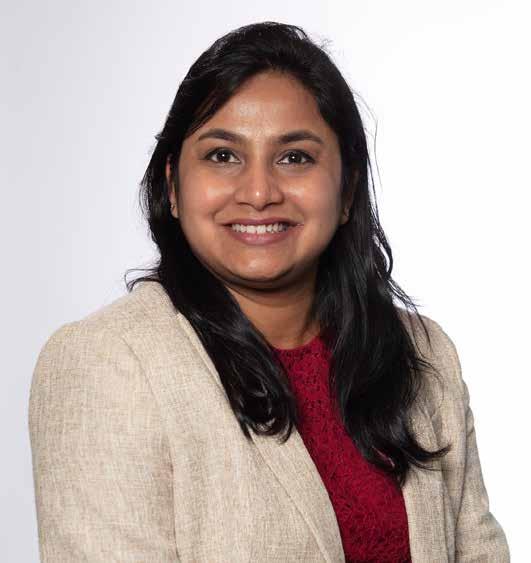
PhD Medicine, 2022
Postdoctoral Scholar, Stanford University
Finalist in the Science and Sustainability category, India
Sushrima is a Statistical Geneticist and had an interest in health and medicine matters from an early age. Her country’s high incidence of diabetes was a key motivational factor in her deciding to study the disease. When she completed her Masters and M.Phil in Biostatistics in India, Sushrima moved to the UK to study for her PhD in Medicine at the University of Dundee, where she explored the difference in diabetes treatment responses between White Europeans and Asian Indians. During her studies, she published various leading research articles on the disease.
Following her interest in multi-omics and for predicting the risk of complications, Sushrima flew to the United States in 2022 and joined the Perelman School of Medicine, University of Pennsylvania, where she researched the genomics and proteomics of heart failure in diabetic and non-diabetic patients.
Sushrima’s passion for education also led her to become co-founder of the not-for-profit Kzarvani Foundation where she is also director. The Foundation focuses on child education in rural and remote villages in India and has already improved the lives of over 500 children
Sushrima’s passion for education also led her to become co-founder of the not-for-profit Kzarvani Foundation where she is also director.
by using learning methods and experiences gained from her Dundee experience.
Reaching the final of the Study UK Alumni Awards in India was a tribute to Sushrima’s achievements in medicine and through her charity. Her fantastic work was also recognised by the University of Dundee’s Bridge Alumni Awards 2023 where she made the final in our Transforming Lives Award category.
Sushrima is now a Postdoctoral Scholar at Stanford University researching risk prediction modelling of paediatric heart failure.
Help us celebrate the contributions of our global alumni community.
The Bridge Alumni Awards recognise alumni who have given back their time to support students, fellow alumni or the University through volunteering or fundraising.
The Transforming Lives Award, introduced in 2023, recognises alumni who are making a difference on a local, national, and global scale. The award enables alumni, University staff and students, in fact anyone who is part of the University community, to put someone they know forward. We received a fantastic response last year and we are hoping we can do the same, or better, this year, with your help.
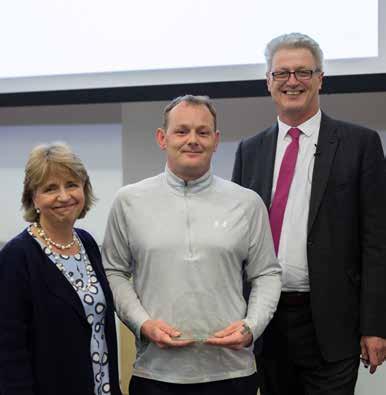
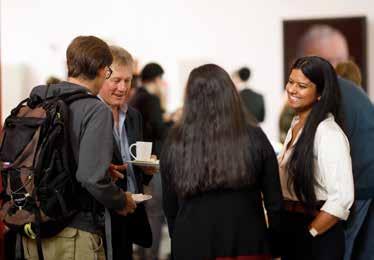
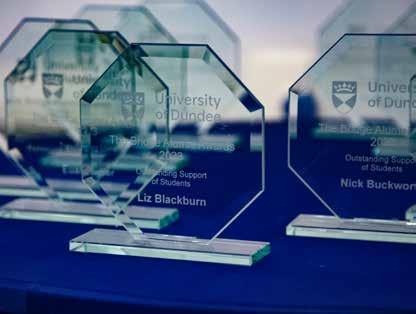
If you know a graduate who is making an impact, nominate via our online form:
uod.ac.uk/bridge-2024transforming-lives-form


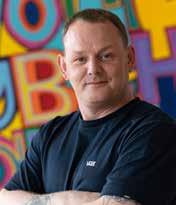

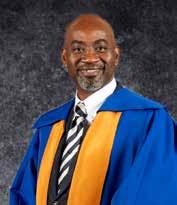
Euan has turned his life around and is now helping others to do the same. He spent nearly a decade dealing with heroin addiction and was imprisoned on several occasions. He now works as an art teacher and recovery officer at Perth Prison.
Euan achieved a first-class degree in Fine Art at Duncan of Jordanstone College of Art & Design and is currently a postgraduate student. Euan won an award to have his dissertation published, which he shared with his class at the prison to help inspire and give hope for a brighter future.
Rebecca has continued to transform the lives of young people in Dundee, across Scotland and in England, through her continued running of comics clubs and individual support of young people in comic creation.
Rebecca was involved in Dundee's creative community through running comics clubs in after school clubs. She ran these from 2017, taking her tuition online during the pandemic where she engaged with over 1000 young people across the UK and North America.
Jonas is a global health scholar and practitioner in strengthening health systems across Sub-Saharan Africa. His projects have included the development of a new model for maternity homes that has been replicated across India, Senegal, Uganda and Zambia.
He also co-founded an app that gives 8.7 million people across Ghana improved access to ambulance services. The World Health Organization recognised the project as being crucial in helping to provide timely emergency care.
Outstanding Support of Students
Liz Blackburn, Administrative Studies, 1986 and Nick Buckworth, Law, 1983
Outstanding Support of the Alumni Community
The Alumni Chapter, Nigeria
Outstanding Support of Student Recruitment
Bassey Hogan-Itam, Corporate and Commercial Law, 2022
Outstanding Support of Fundraising
Class of 1974 Medics
Outstanding Alumni Ambassador
Jon Fitzpatrick, Law, 1994 and Resources Law and Policy, 1996
Outstanding Support from a Recent Graduate
Madhavi Dubey, Leading Learning and Teaching, 2023 and Ross Grieve, Business Management, 2021
Outstanding Reunion Organiser
Sandra Campbell , Medicine, 1976

You can read more details on our winners and the finalists on our website at:
uod.ac.uk/bridge-2024-last-years-winners Register to attend this year’s awards!
Congratulations to you all!
The Bridge Alumni Awards 2024 will take place online in early September.
To register your interest, visit uod.ac.uk/bridge-awards-2024 or scan the QR code.
As a graduate of the University of Dundee, you will always be part of our alumni community. There are many ways you can get involved.
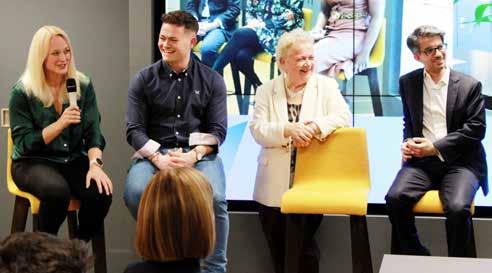

Events are a fantastic way for you to keep connected with the University and your fellow alumni, as well as grow your professional and personal networks. The Alumni Relations team also work with governments and agencies, such as the British Council and business networks, to invite you to attend events and participate in speaker and panel opportunities.
Over the past year, our alumni have attended various professional development and networking events in the UK and across the globe. These have included events in Hong Kong, Singapore, Malaysia, Indonesia, London, New York and Dundee.
Alumna, Joanna Montgomery, founder of Little Riot, was a panel member at this year’s Emerging Scots event in London. She said, “I really enjoyed meeting other entrepreneurs from Scottish universities, and the panel discussions around the complexities of London's dynamic business environment provided valuable perspectives on both the opportunities and challenges that the city presents.”
We are looking forward to organising more events in the weeks and months ahead and would love to see you there!
We can only invite you to events if we know how to reach you! Update your contact details and preferences at: uod.ac.uk/bridge-2024get-involved
Joanna Montgomery (far left) at the Emerging Scots event in London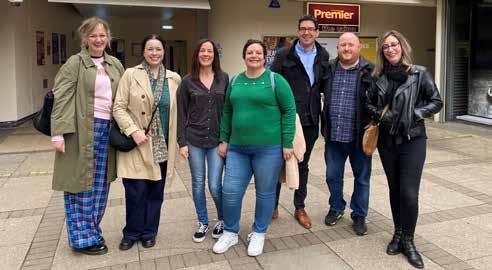
Every year we welcome many of our alumni back to campus, whether part of a class year or individual visits, to reminisce about the good old days!
The Alumni Relations team can also take a reunion to you. In 2023 we visited York where we met a group of over 20 dental alumni celebrating their 45-year reunion. If you fancy returning to campus for a reunion (or would like to arrange a reunion where you are) the team in Alumni Relations is ready to help. We can support with organising tours of campus, taking you down memory lane with Archives, sourcing fun Dundee tourist activities as well as help with finding great value dining and accommodation packages.
Commenting on her 20-year reunion, held in 2023, Dentistry graduate Louise McPeake said, “A few of us decided to organise a 20-year reunion to re-connect with our fellow classmates of 2003. It was a fantastic opportunity to track down old classmates and return to campus and the city. We all had an enjoyable time with highlights including the walking tour of the West End and drinks back at the Union. It was also lovely to return to the Dental School to speak to staff there where we all first met. The support we received from the Alumni team was just superb. We can’t wait to return for our 25-year reunion!”
If you’d like to enquire about a reunion, email us at alumni@dundee.ac.uk
We have a thriving community of alumni across the world, with many involved in active alumni networks and chapters for you to join. Our global chapters are a fantastic source of support and can provide you with advice on moving to a new city or country, guidance on a particular specialism or career, or simply help build your connections.
Our alumni chapters in Nigeria, Indonesia and Singapore are already established and we are rolling out chapters in Malaysia, New York, London and Dundee!
If you’d like to find out more about Alumni Networks in your area, be connected with alumni leading those networks, or volunteer to coordinate a network where you are, get in touch via alumni@dundee.ac.uk
“It was a fantastic opportunity to track down old classmates and return to campus and the city.”
Louise McPeake, BDS, Class of 2003Join our warm and welcoming community of alumni volunteers who use their skills, expertise and passion to give back and make a difference.
Volunteering enables you to share your knowledge to enhance the student experience by giving talks, mentoring or taking part in student recruitment and career events. It’s also an excellent opportunity to develop your skills for your own professional and personal development, not to mention meeting new friends and expanding your network.
If you are interested in volunteering, let us know by emailing alumni@dundee.ac.uk
Sign up to our mailing list or update your details
To ensure you receive news and invites to events wherever you are, make sure you are signed up to our mailing list and we have your up-to-date details.
Simply scan the QR code or visit: uod.ac.uk/bridge-2024-get-involved
If you’d like to find out more about any of our activities featured on this spread, you can email alumni@dundee.ac.uk

Whether you are new to the University of Dundee family or have been a stalwart of the community for many years, we value your support and we want to keep you informed of news, events and activities that matter to you. There are lots of things happening that will interest you.
By keeping in touch, you can find out more about:
→ University news
→ Events in Dundee, the UK and worldwide
→ Joining an alumni network near you
→ Mentoring and guest speaker opportunities
→ Discounted fees on taught postgraduate courses
→ Support you can receive through our careers service
→ Promoting internship and work placements within your organisation
→ Discounted access to University facilities
Update your contact details for a chance to win a weekend in Dundee for two!
By updating or reconfirming your contact details, we can send you news and events that are relevant to you and where you are in the world!
If you update your details by 30 November 2024 via the online form, you’ll be entered into a prize draw to win a weekend in the sunniest city in Scotland.
To enter visit: uod.ac.uk/bridge-2024-prize-draw
The prize includes:
→ A two-night stay for two with breakfast at the 4-star Malmaison Hotel, a haven of sophistication and style
→ An evening meal at the Malmaison Bar & Grill
→ Experience the award-winning V&A Dundee on the city’s waterfront, including a bespoke tour around the venue enjoying its world-class displays and exhibitions
→ A trip back to campus – yes, we’d love to see you! Whether it’s a campus tour or a coffee at the Top of the Tower, we’ll organise a bespoke package for you and your guest to enjoy!
Terms and conditions
Terms and conditions apply. Please visit uod.ac.uk/bridge-2024-terms-prize-draw for details.
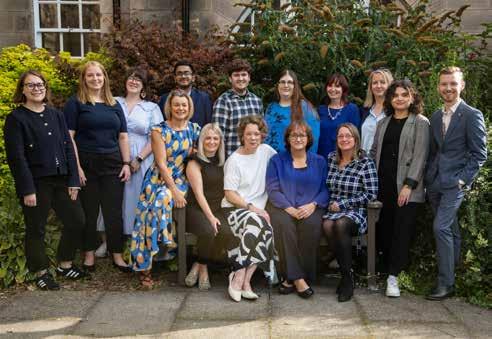
I hope you have enjoyed reading the 2024 edition of The Bridge. As I reflect on a busy year for the University, it is fantastic to see the achievements of so many of our alumni and staff in the magazine. The University of Dundee continues to shine, named Higher Educational Institution of the Year at the Herald Higher Education Awards 2023, Scotland’s premier celebration of the sector and its achievements. It has been marvellous to have the chance to travel with both the Principal and colleagues from the Advancement team this year, to meet alumni across the country and the globe, with gatherings in Hong Kong, Singapore, Malaysia, Indonesia, London, York and of course Dundee. A recurring theme when meeting alumni and supporters is the deep sense of pride in the
Privacy notice
Your relationship with Dundee as a graduate or supporter is very important to us. We aim to be transparent and trustworthy in how we maintain and protect your data. To find out more on how we do this please visit: uod.ac.uk/bridge-2024-alumni-privacy-notice
University that radiates through conversations, and how connection to our University of Dundee community is so important. Time spent at university is formative in so many ways, but it’s just the start of our journey with you and you will always be part of the family! Lord Robertson is testament to that, coming full circle from student to Chancellor, and we were all thrilled to participate in his installation during November’s graduation ceremonies.
So much of what we achieve is done with your support, whether volunteering, mentoring or through your generous philanthropy. In partnership with you, we can go on to achieve so much more and if you have not done so before, I invite you to consider giving back in support of the next generation of Dundee students.
The Bridge is produced by the Department of External Relations, University of Dundee.
Advancement
Lizzi Nicoll, Rebecca McSherry, Pamela Lawrence, Sheryl Morris, Kerry Drysdale, Stefan Riddock, Leah McLaren, Thomas Kinney-Nicol, Suzanne Paterson-Black, Yvonne Murray, Mariel Symeonidou, Kirsty Irons, Kim Malherbe, James Entwistle, Lauren Urquhart, Martyna Iwach, Susan Giel
Corporate Communications
Roddy Isles, Jonathan Watson, Hannah Adams, Sheanne Mulholland, Jessica Rorke
Creative Services
David Gilchrist, Kenneth Malcolm, Emma Alexander
“So much of what we achieve is done with your support, whether volunteering, mentoring or through your generous philanthropy. In partnership with you, we can go on to achieve so much more.”
Lizzi Nicoll Interim Director of External RelationsWe look forward to continuing the conversation with you – we will keep you informed of what’s happening on campus and look forward to hearing from you regarding your successes, and how we can work together. I hope that I have the chance to catch up with you in person at an event here in Dundee, across the UK or the world.
Lizzi Nicoll Interim Director of External RelationsAdvancement team dundee.ac.uk/alumni advancement@dundee.ac.uk +44 (0)1382 381184
@dundeeuni
University of Dundee
